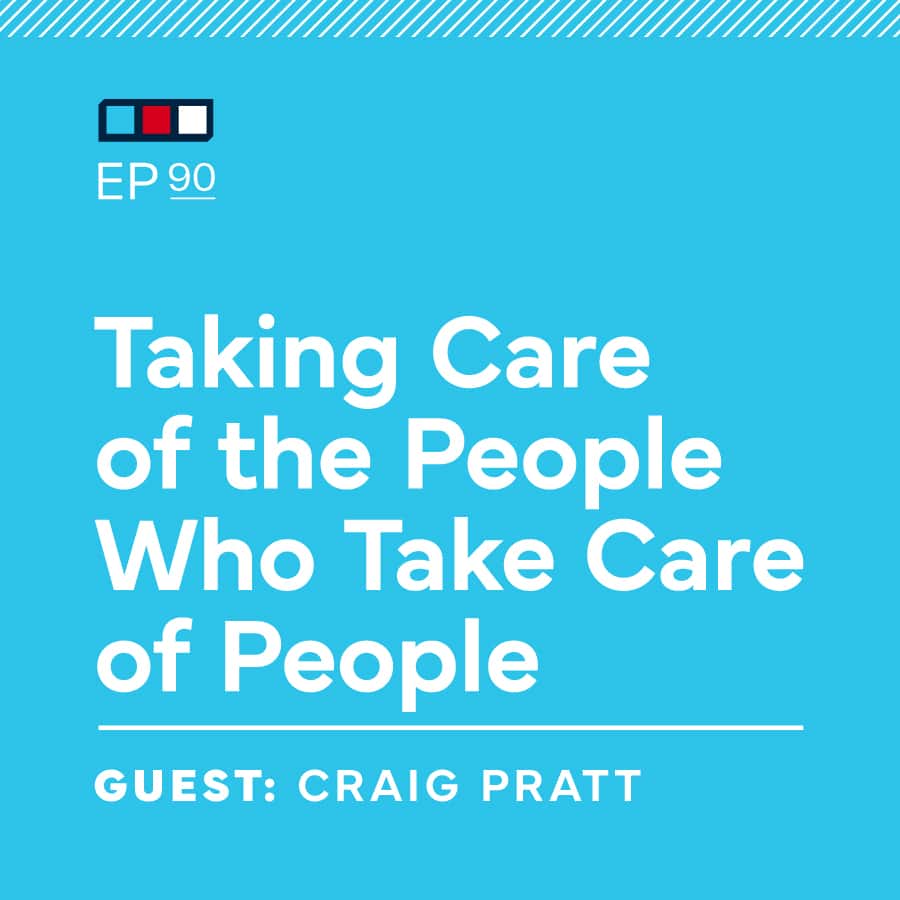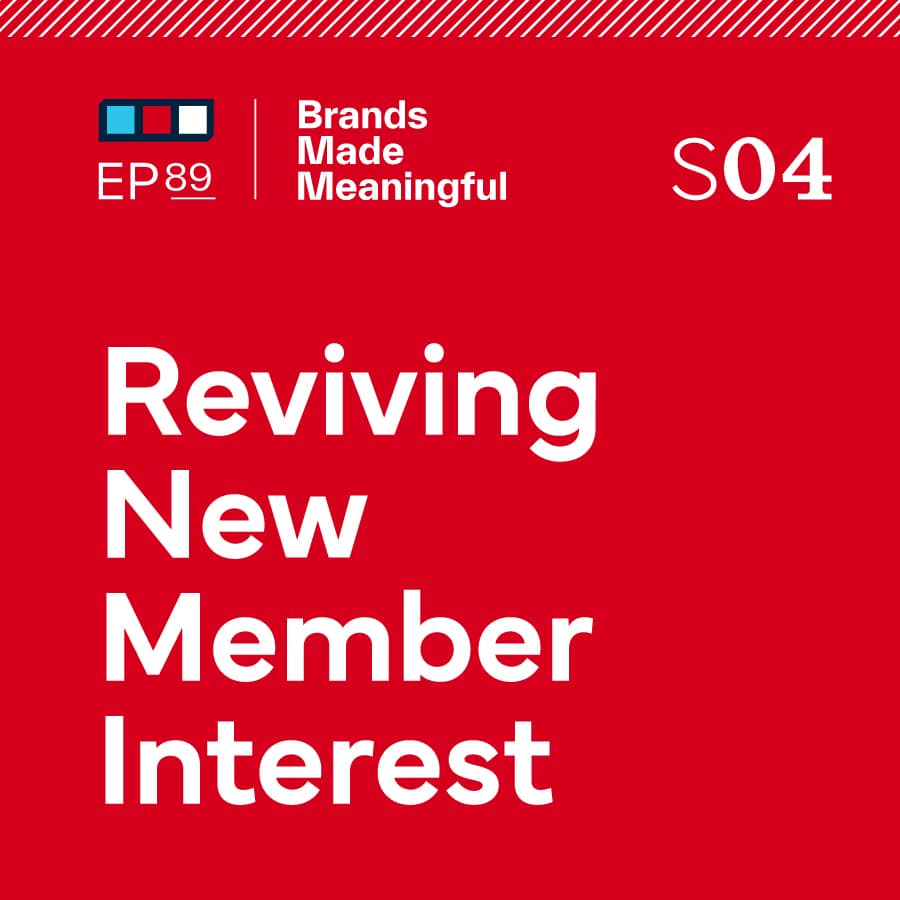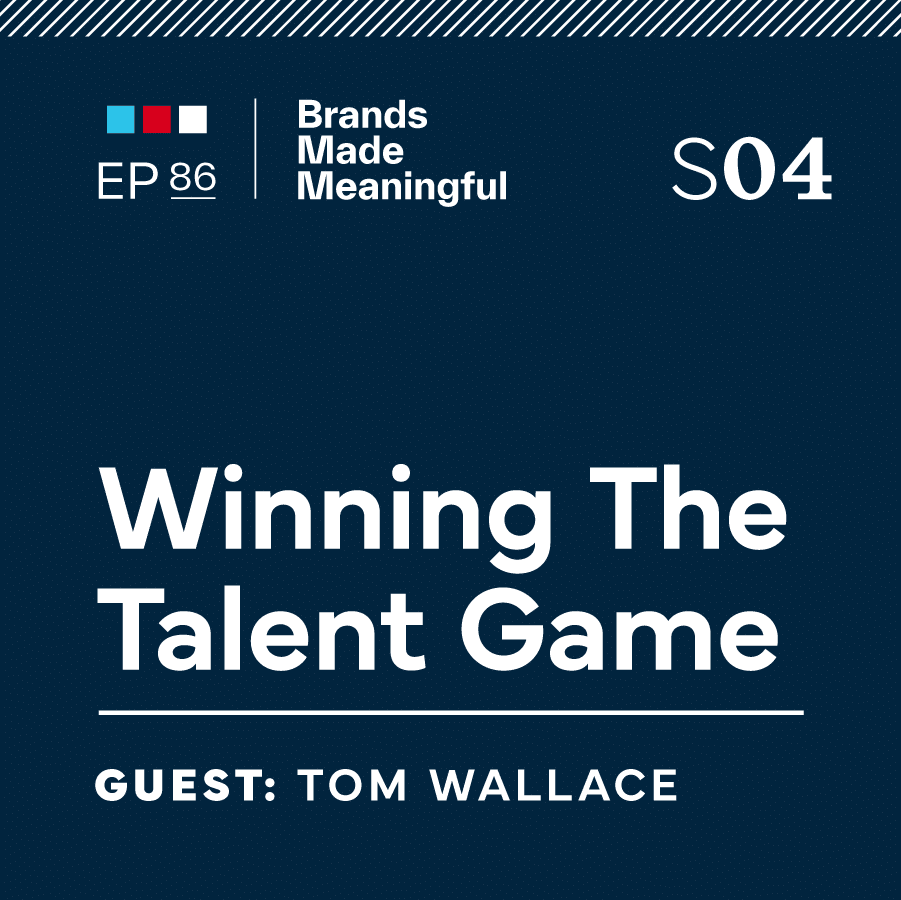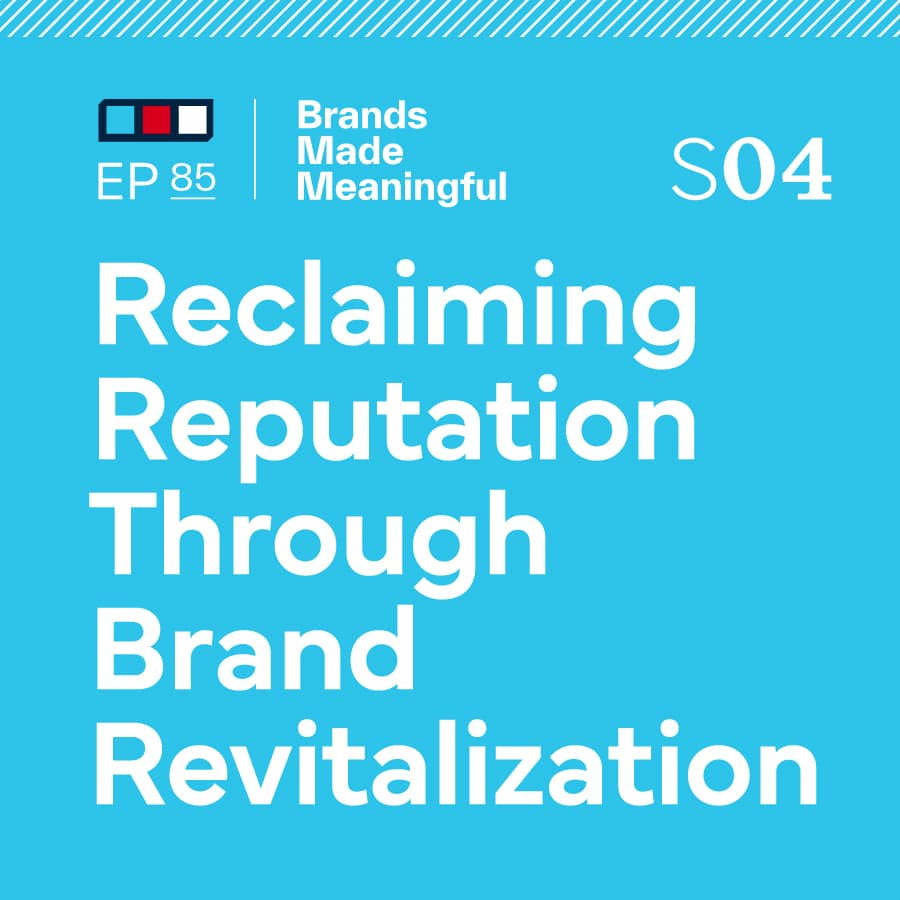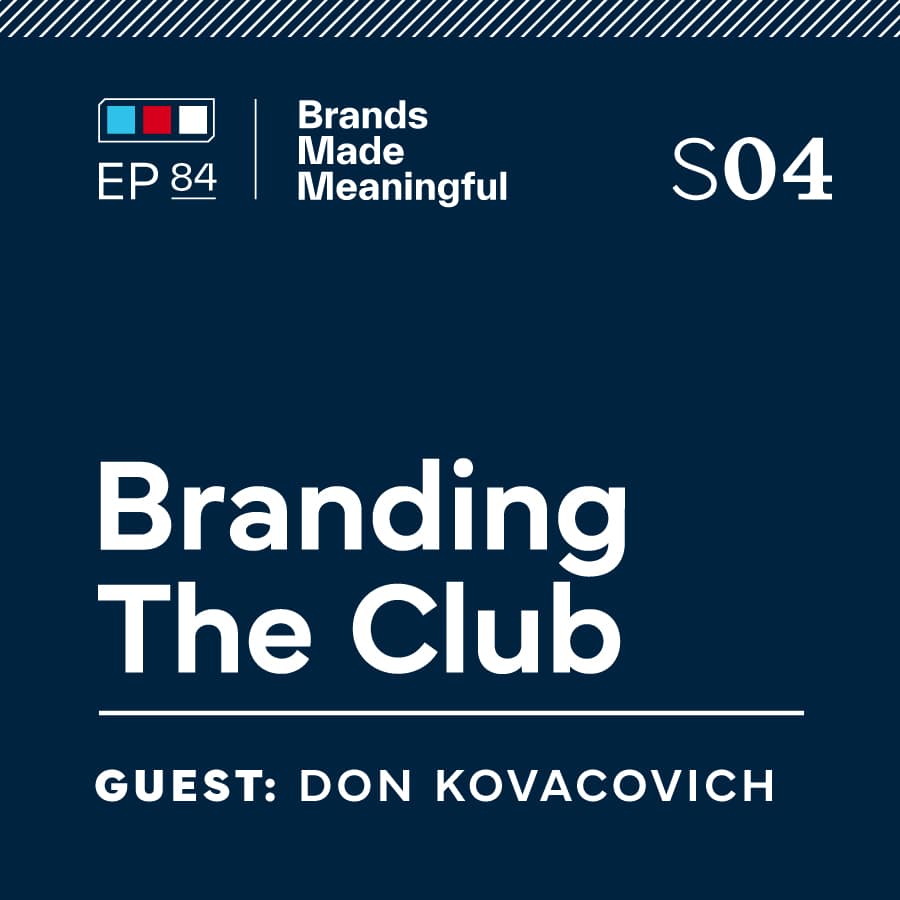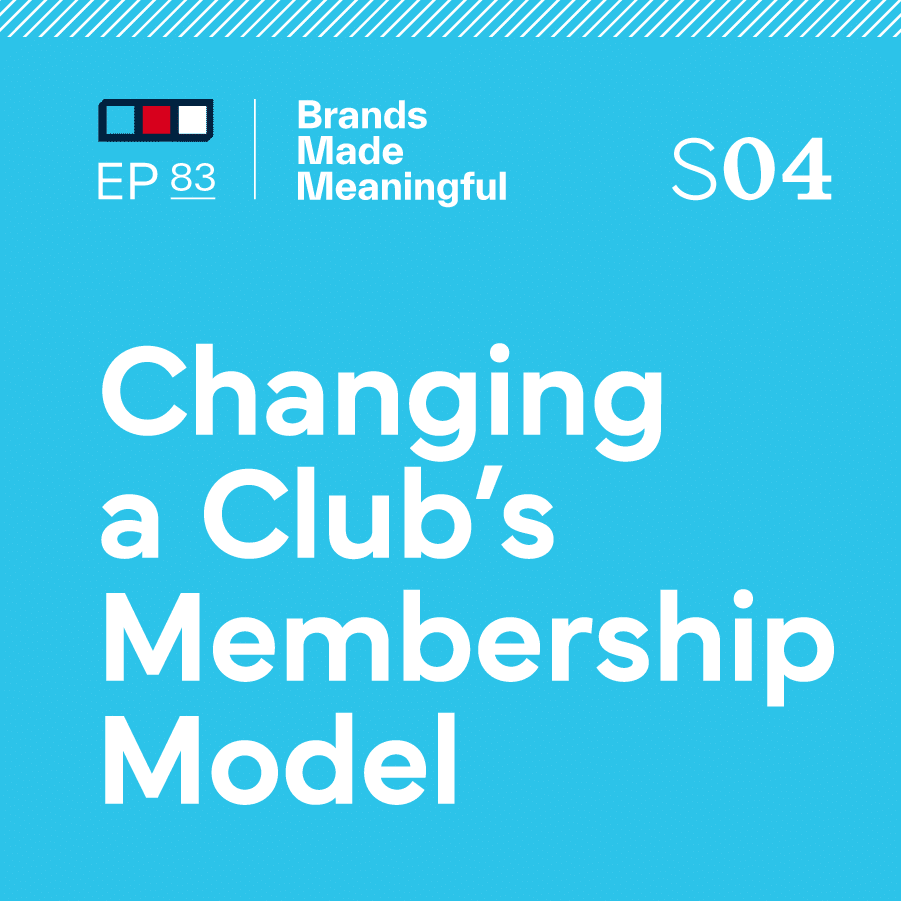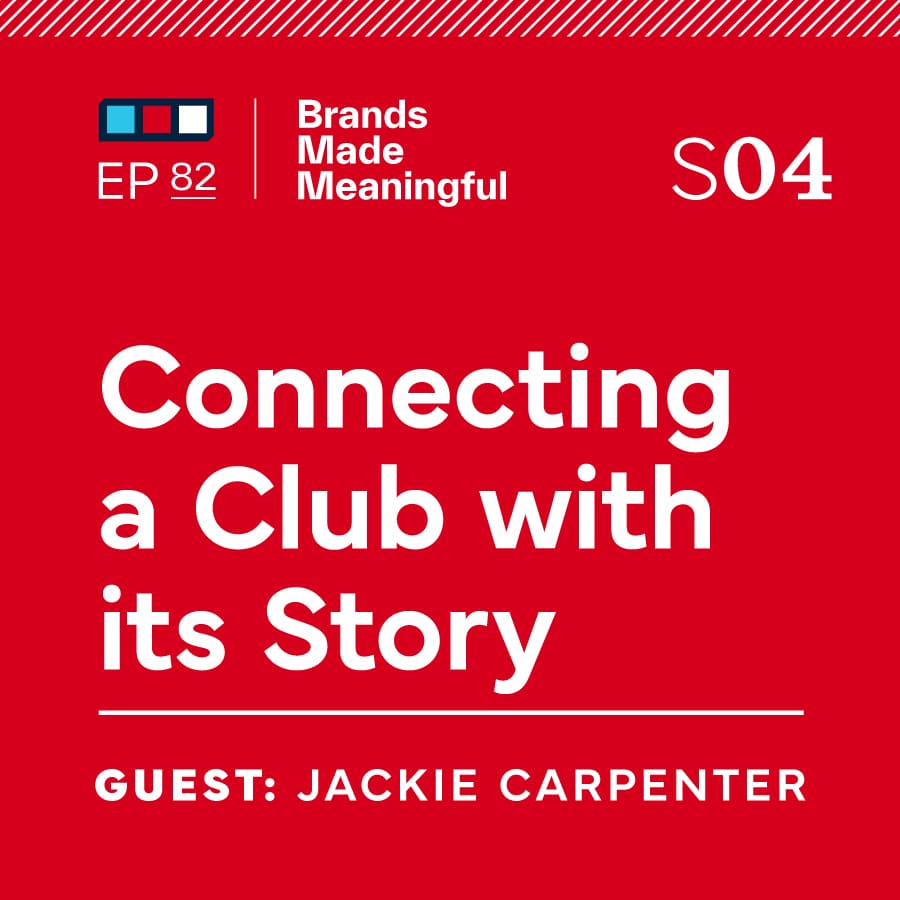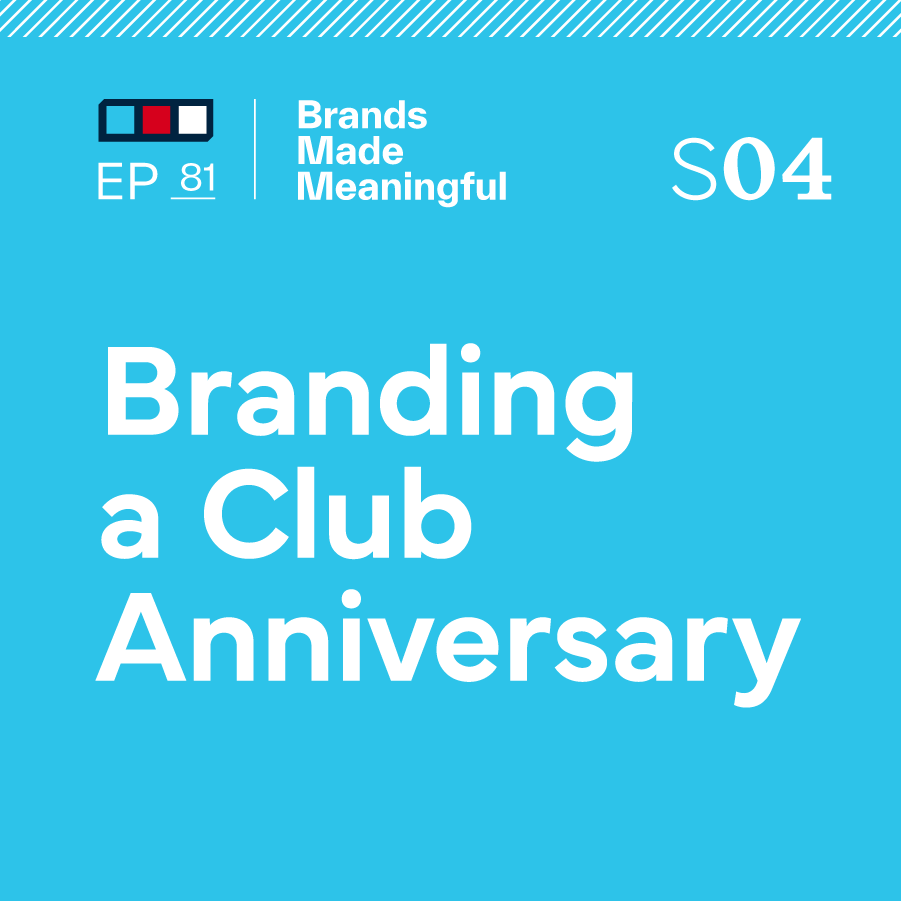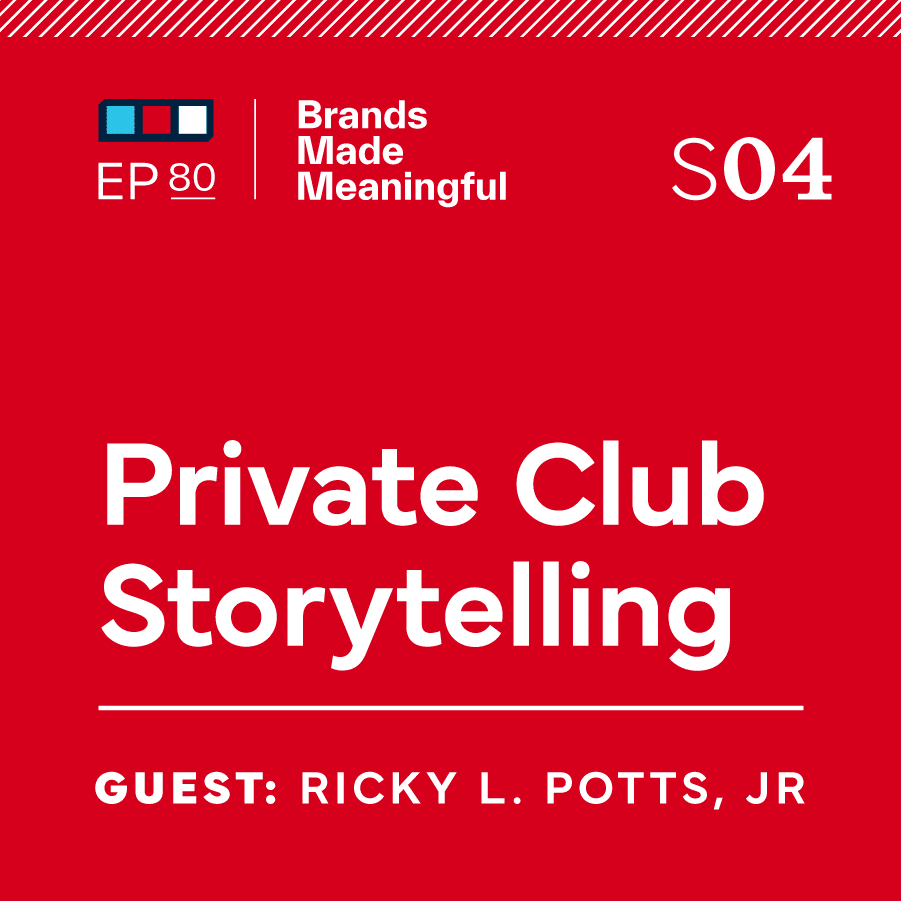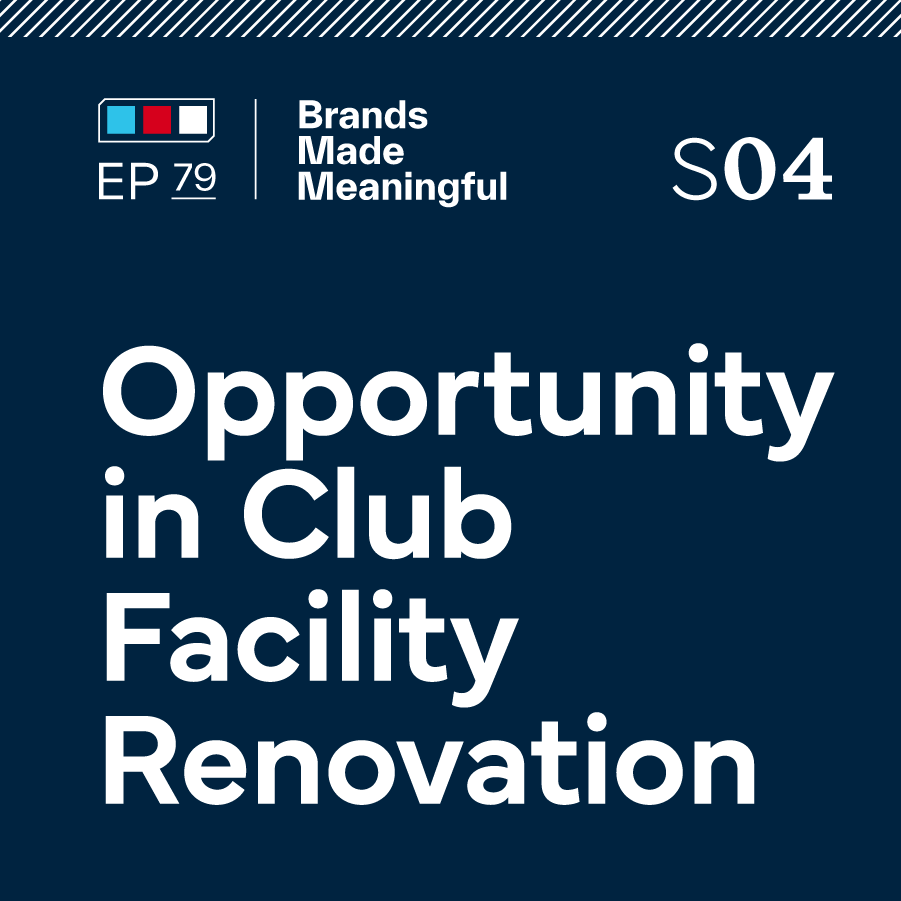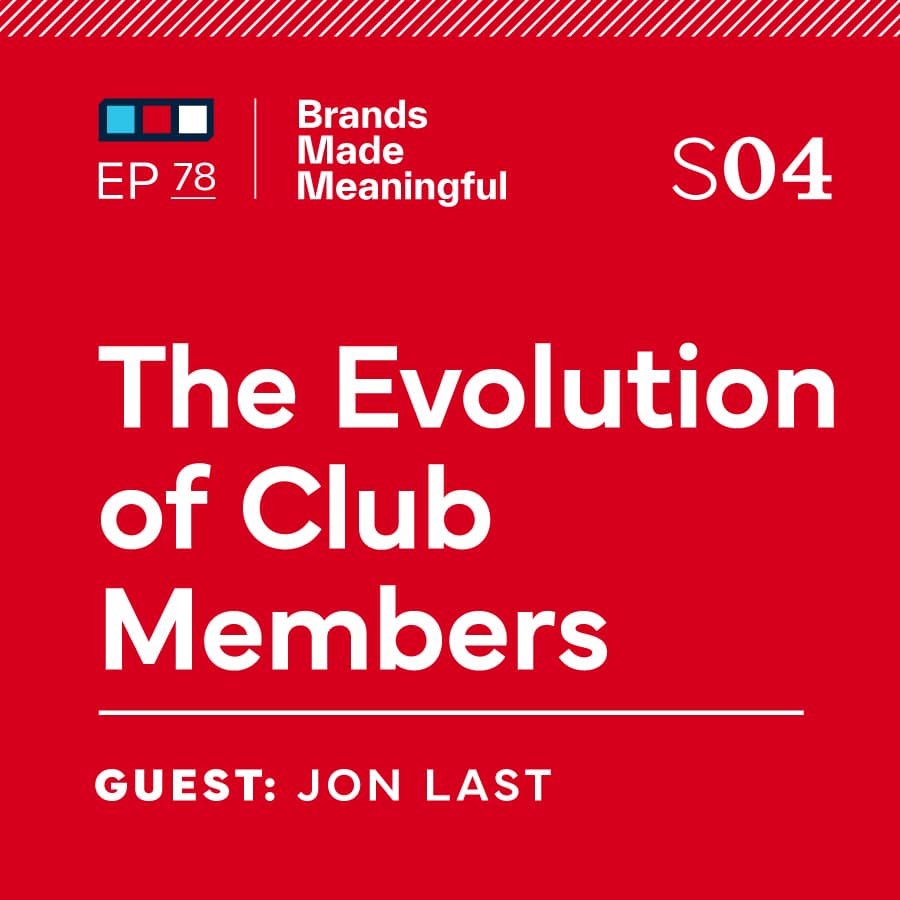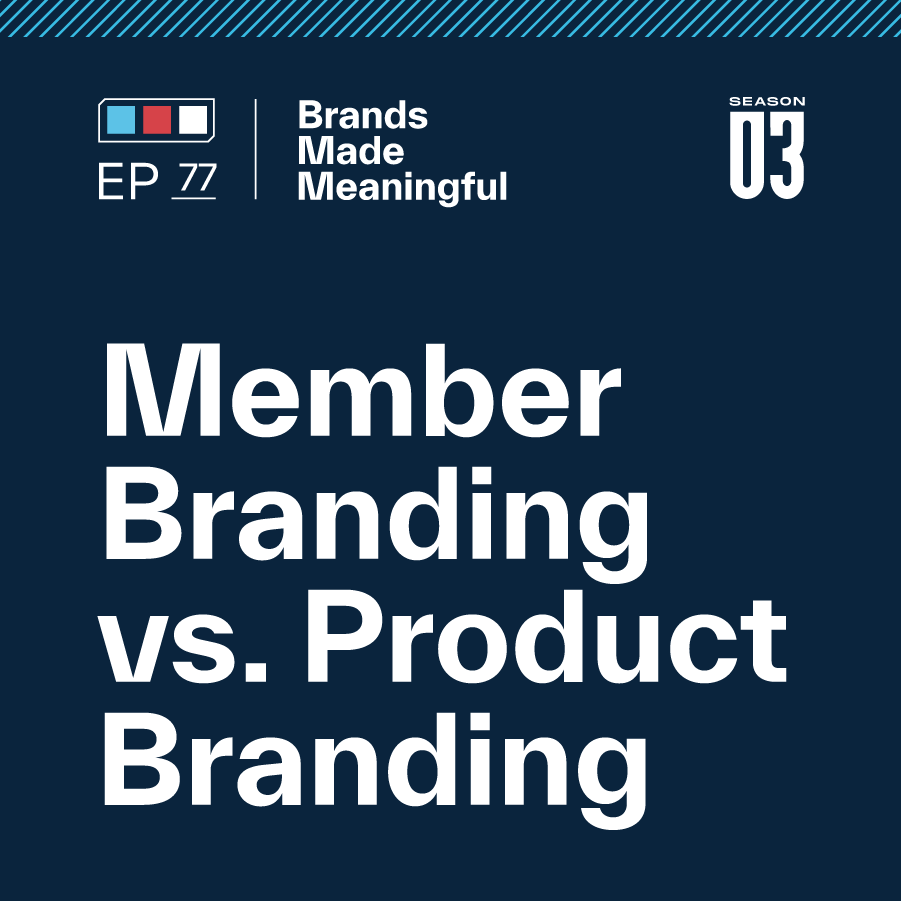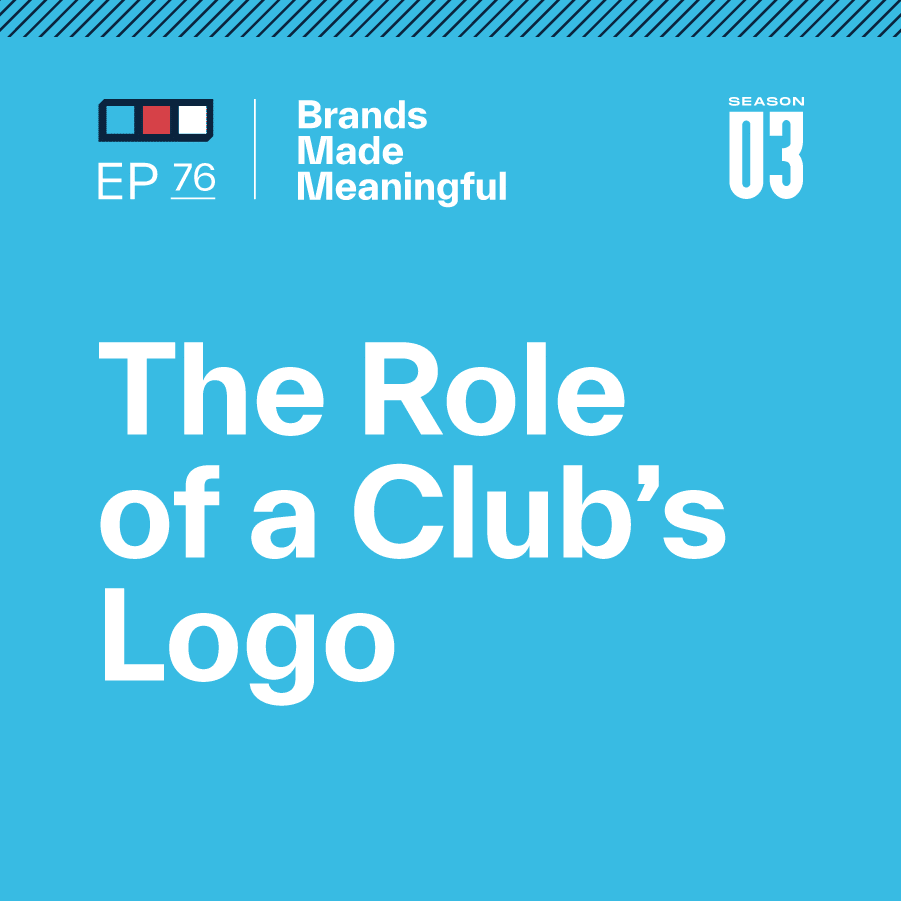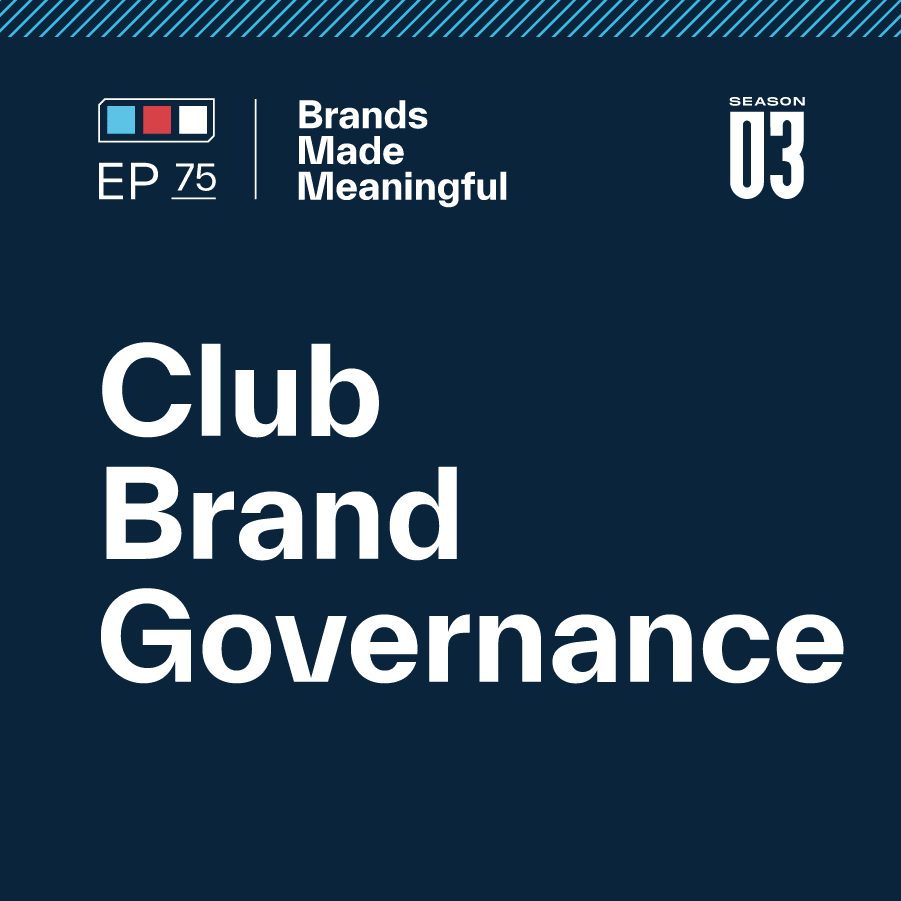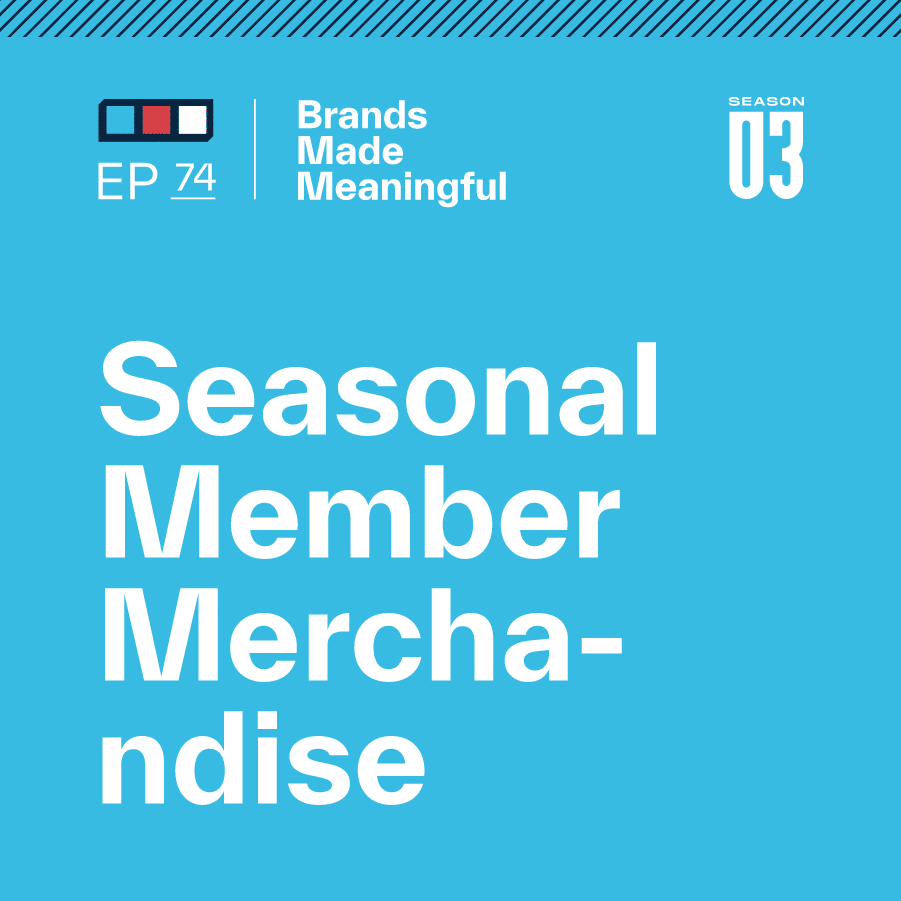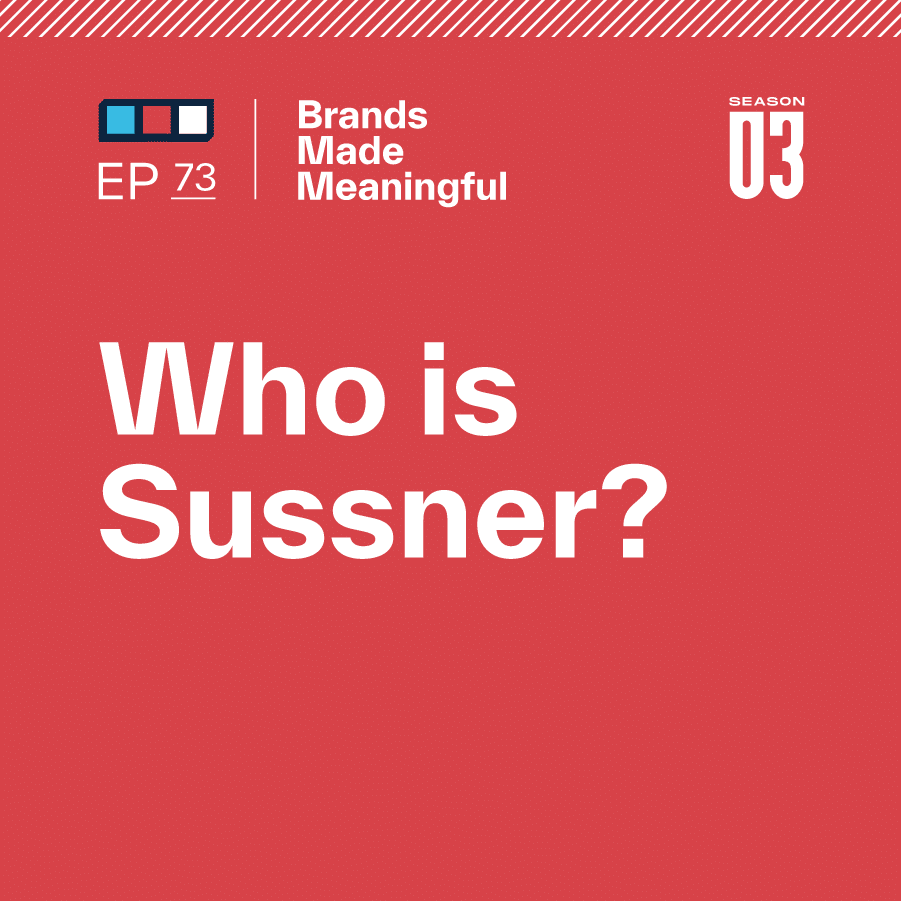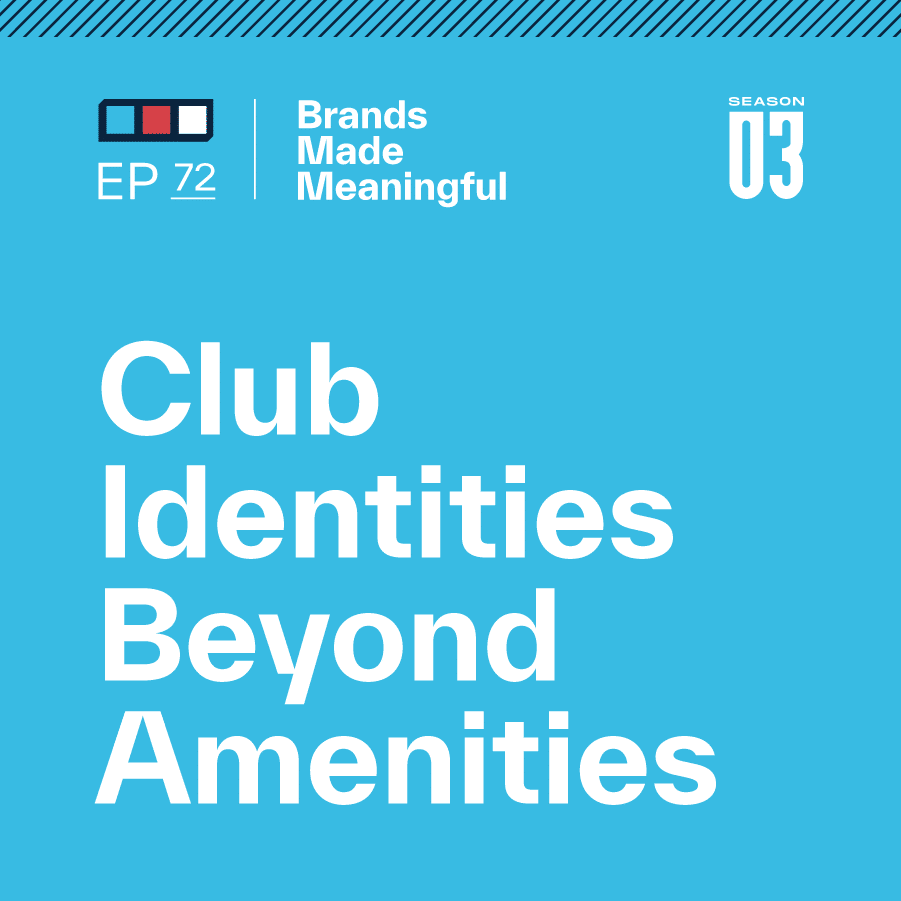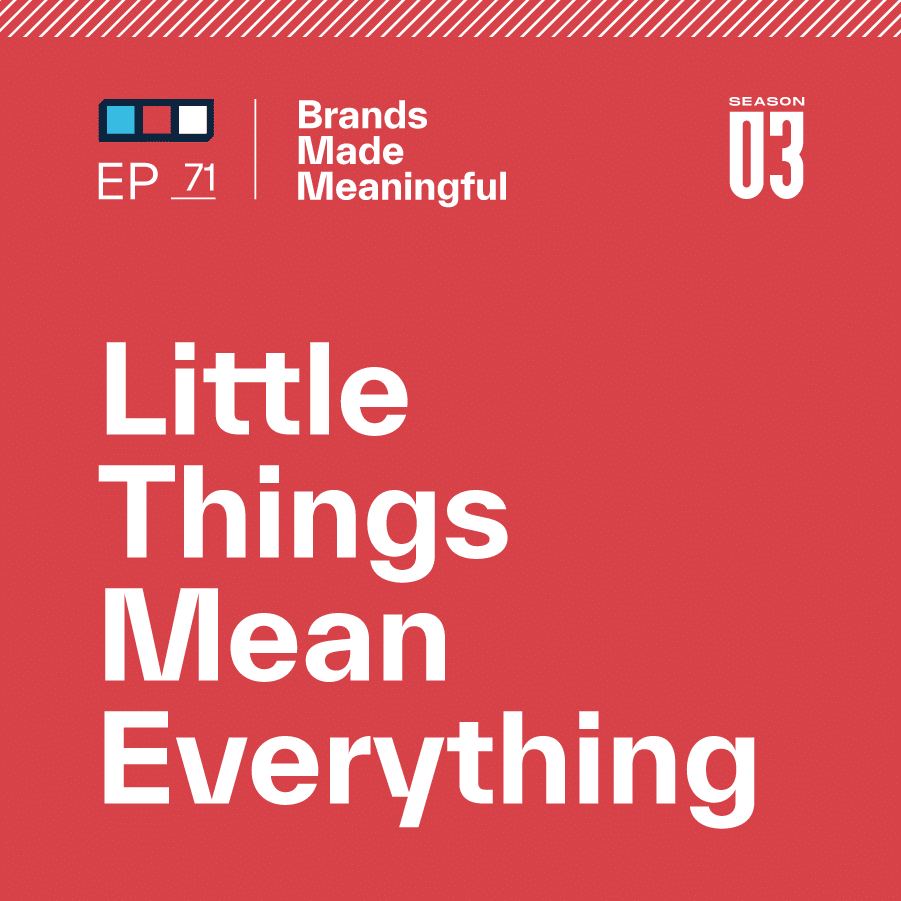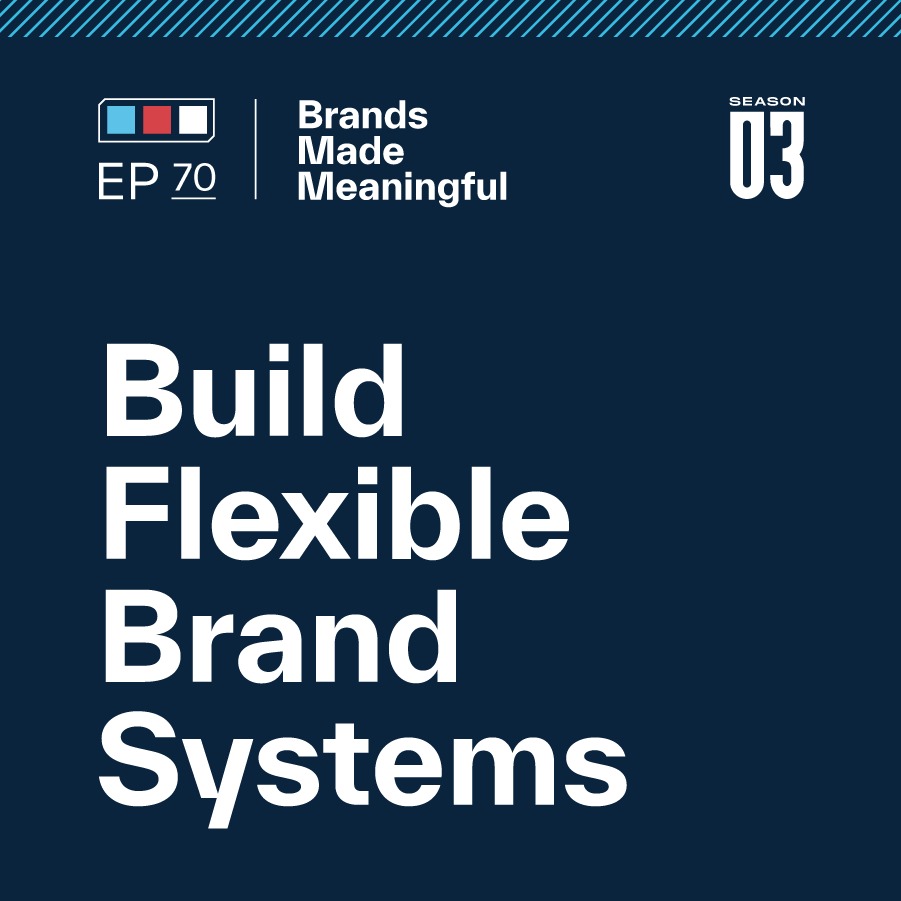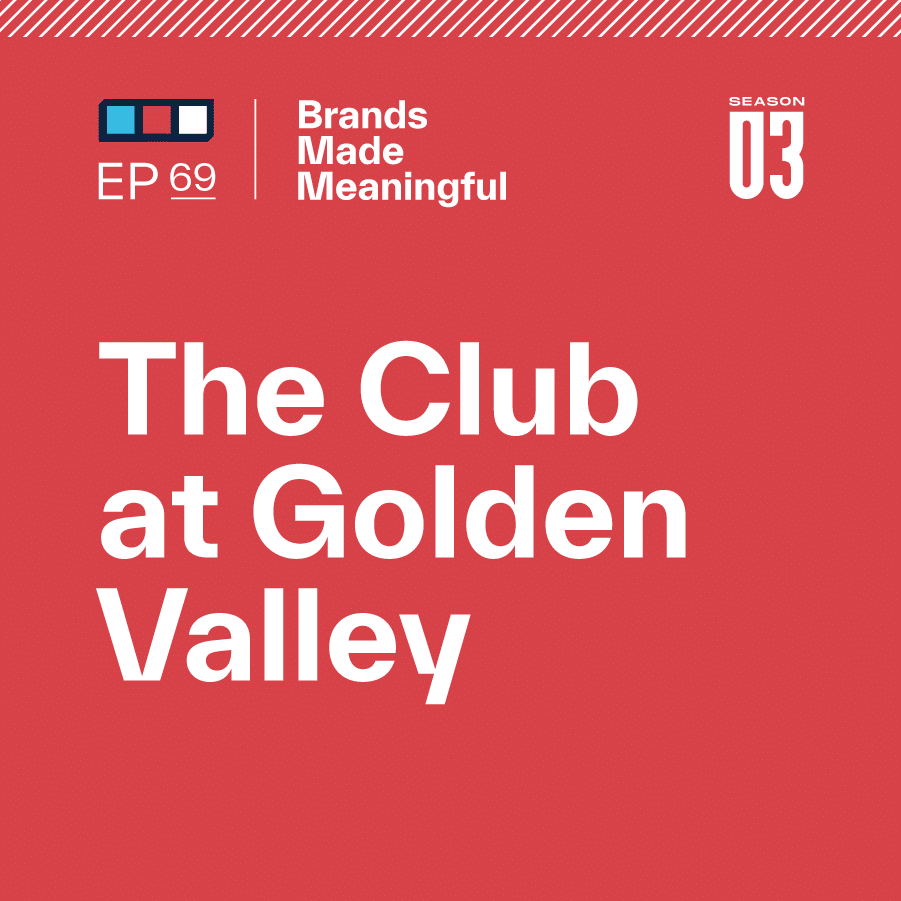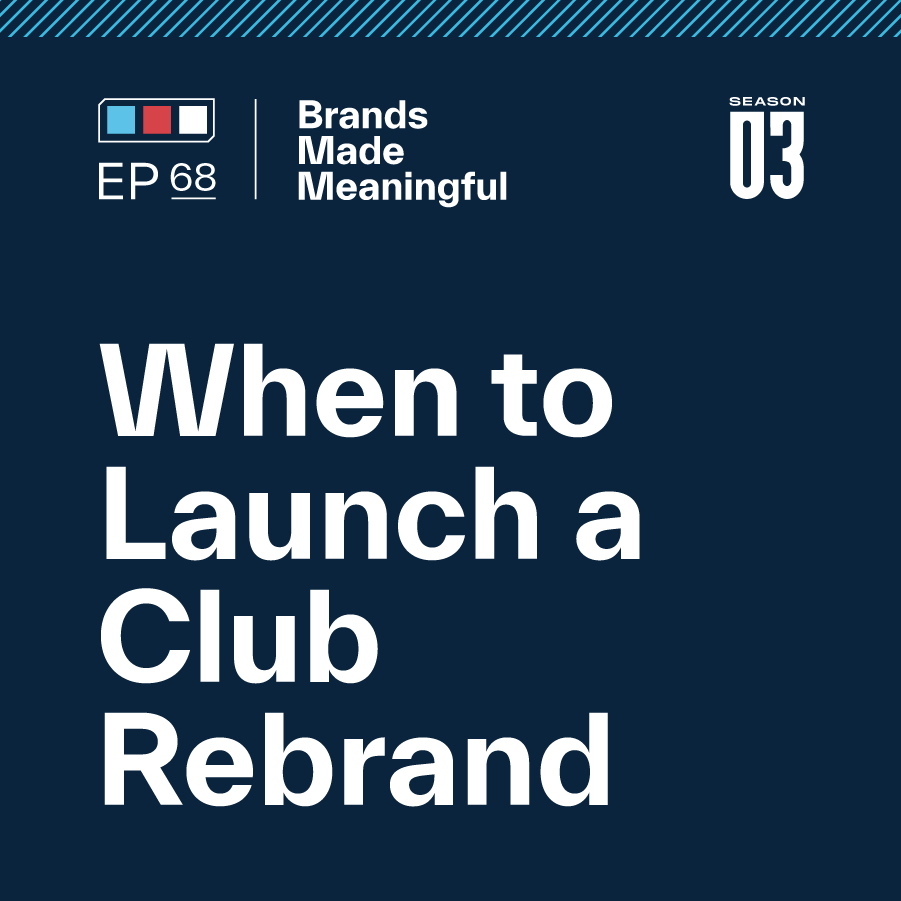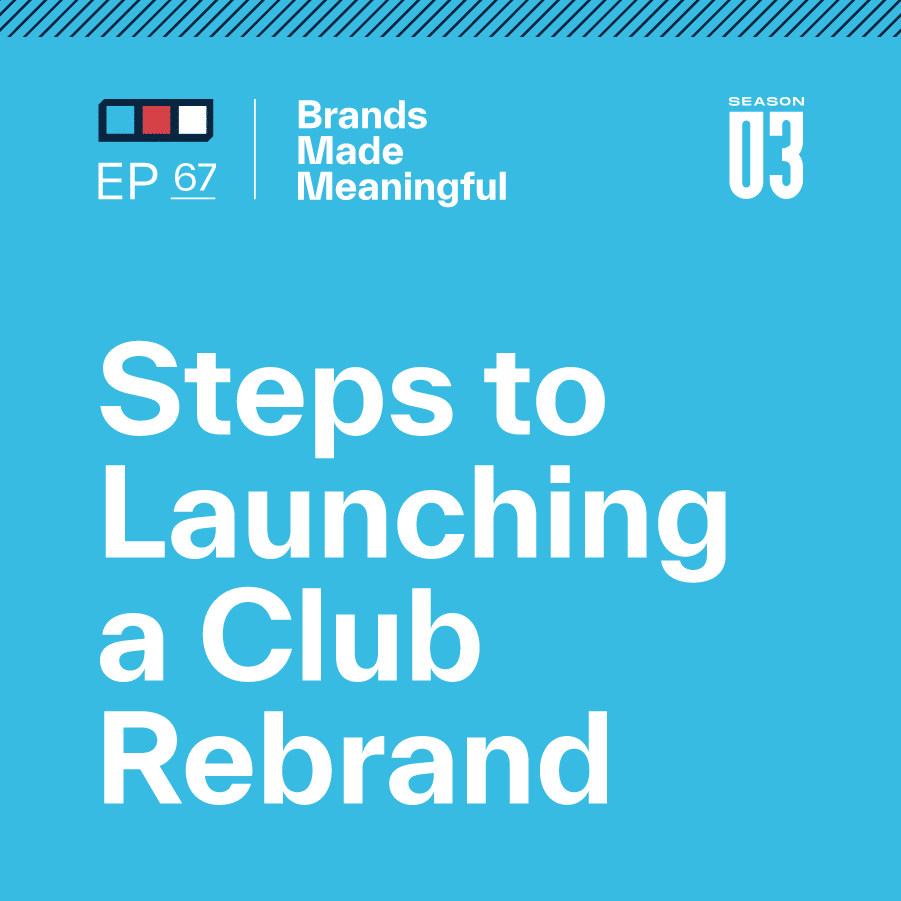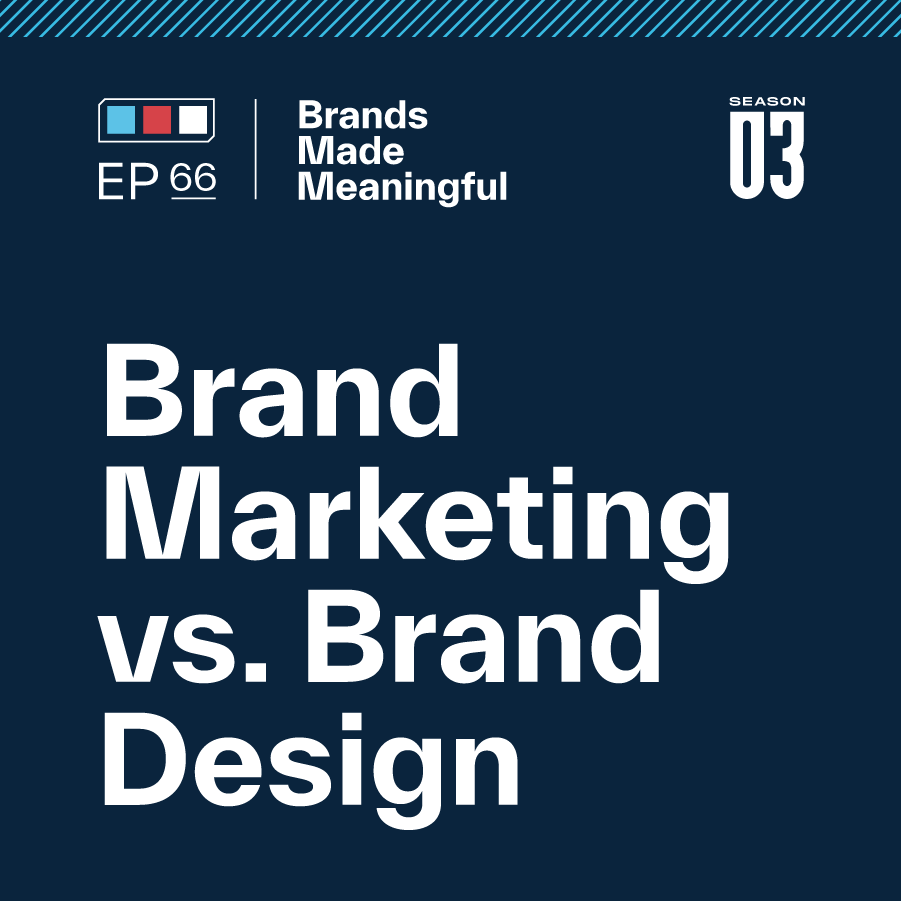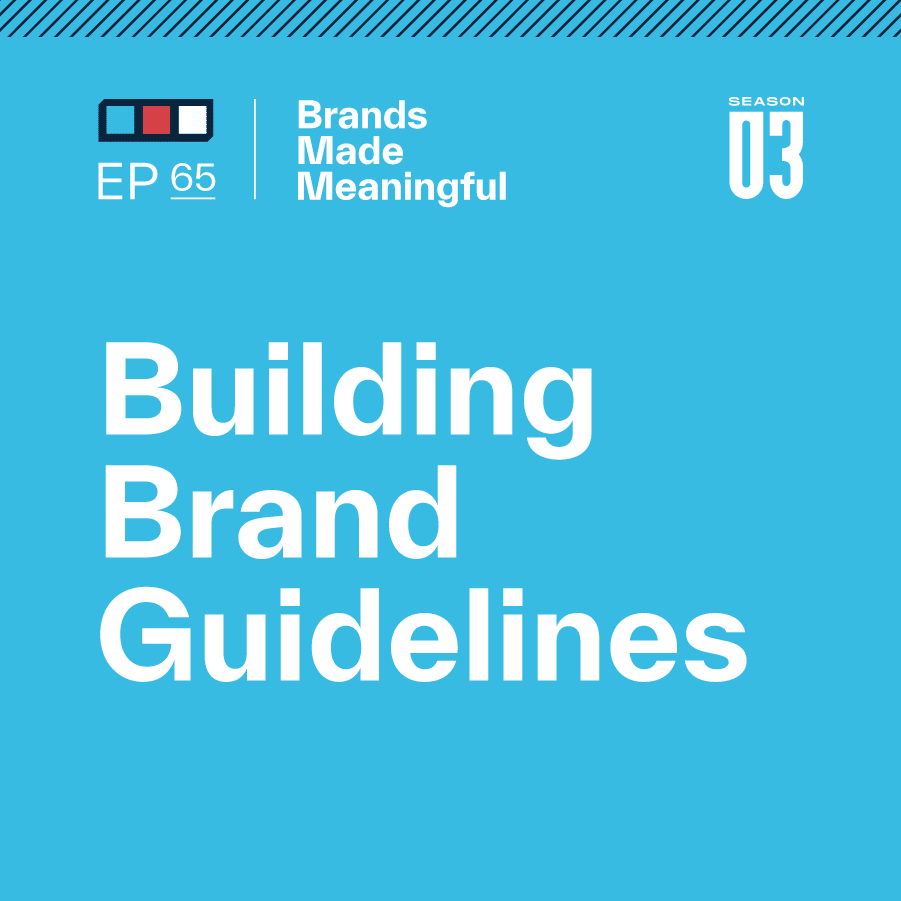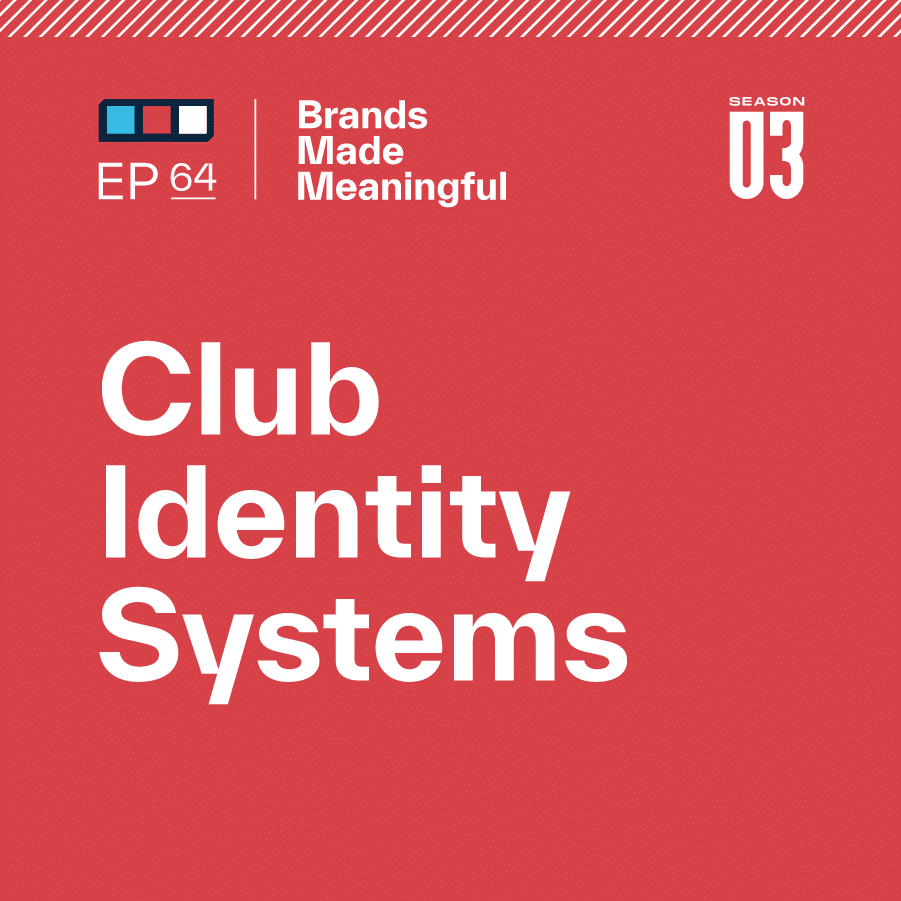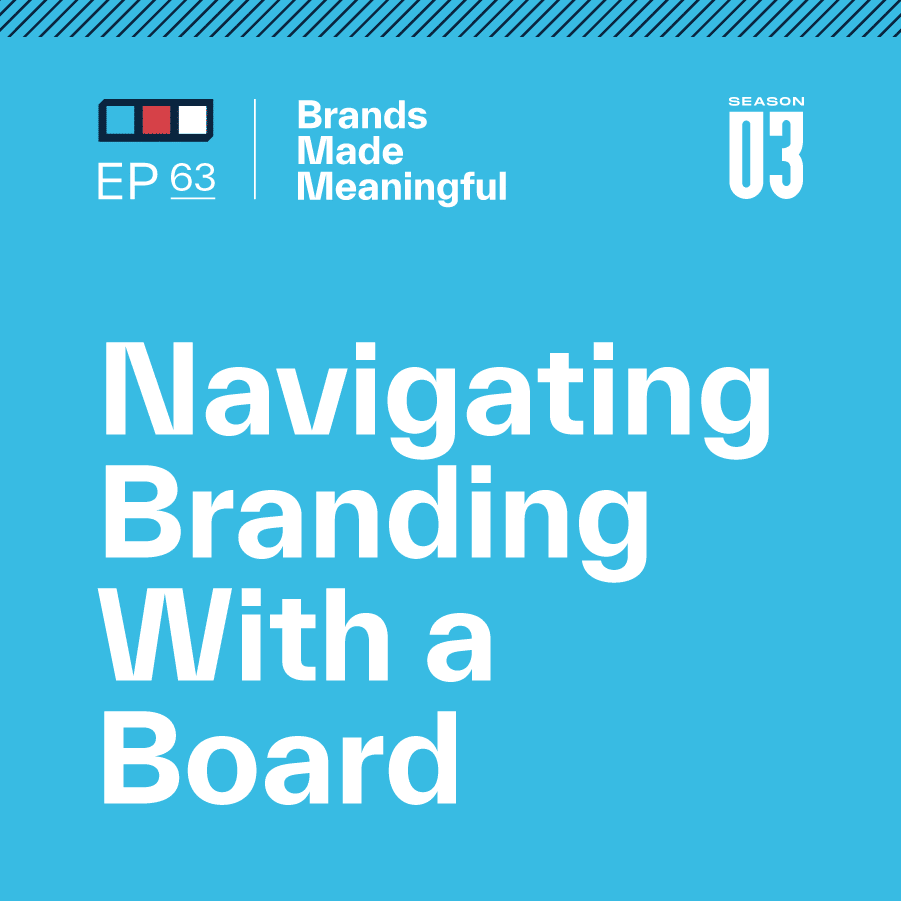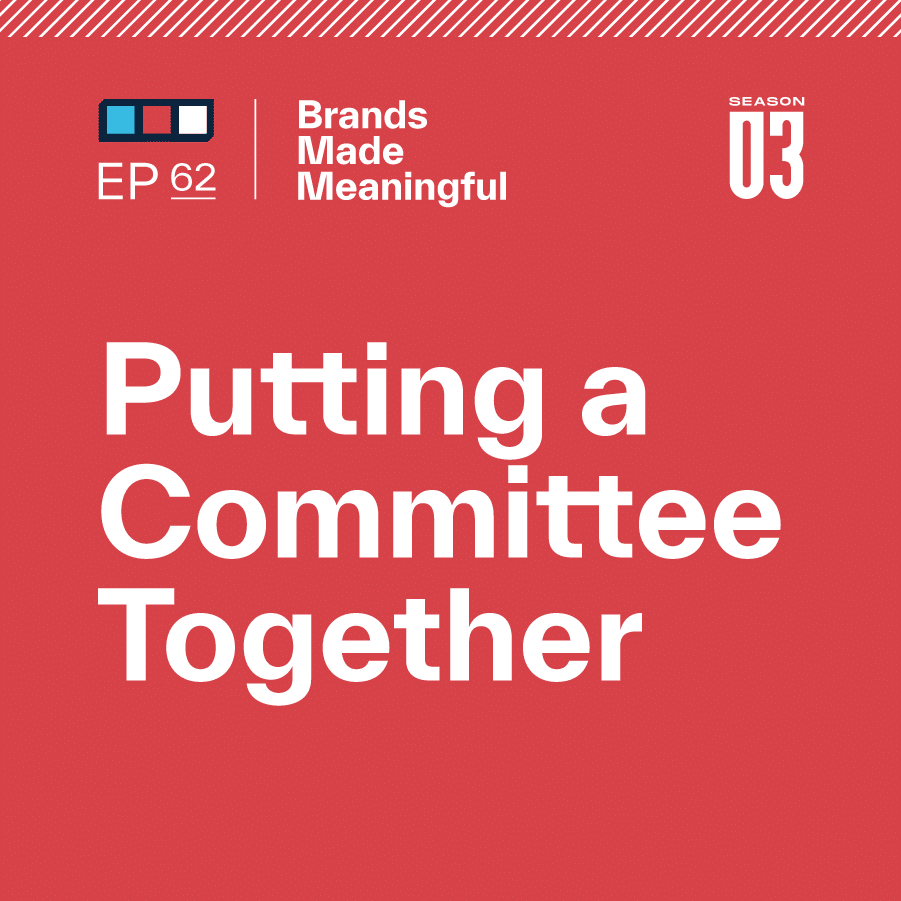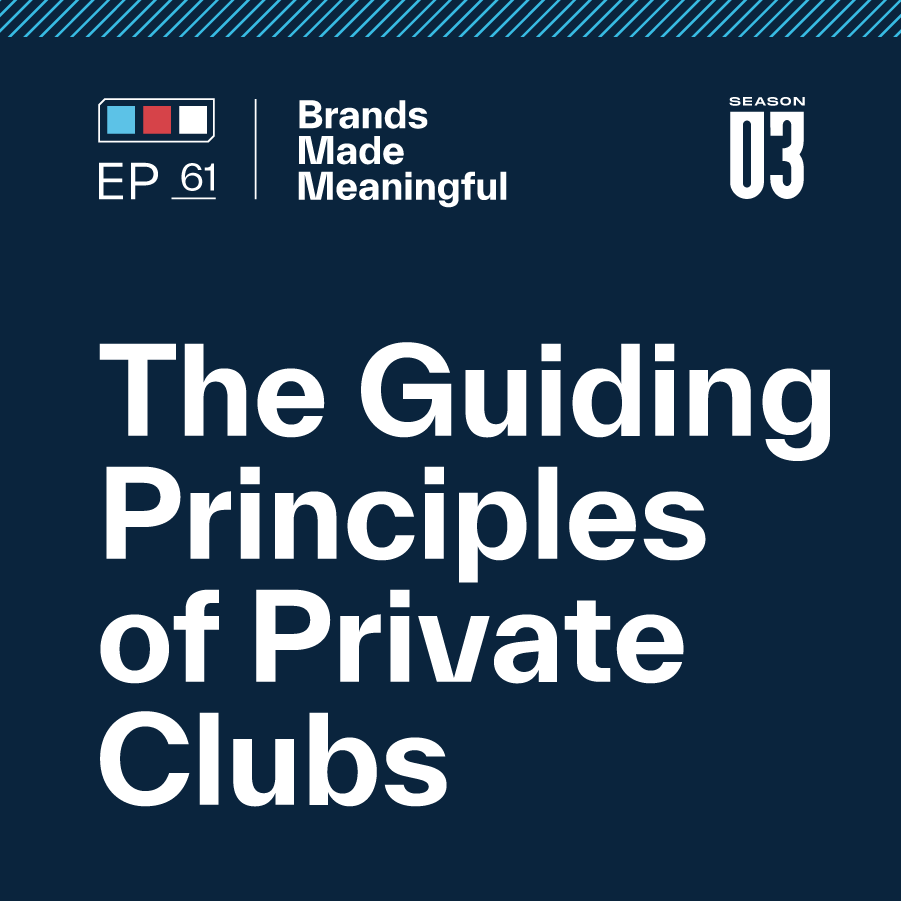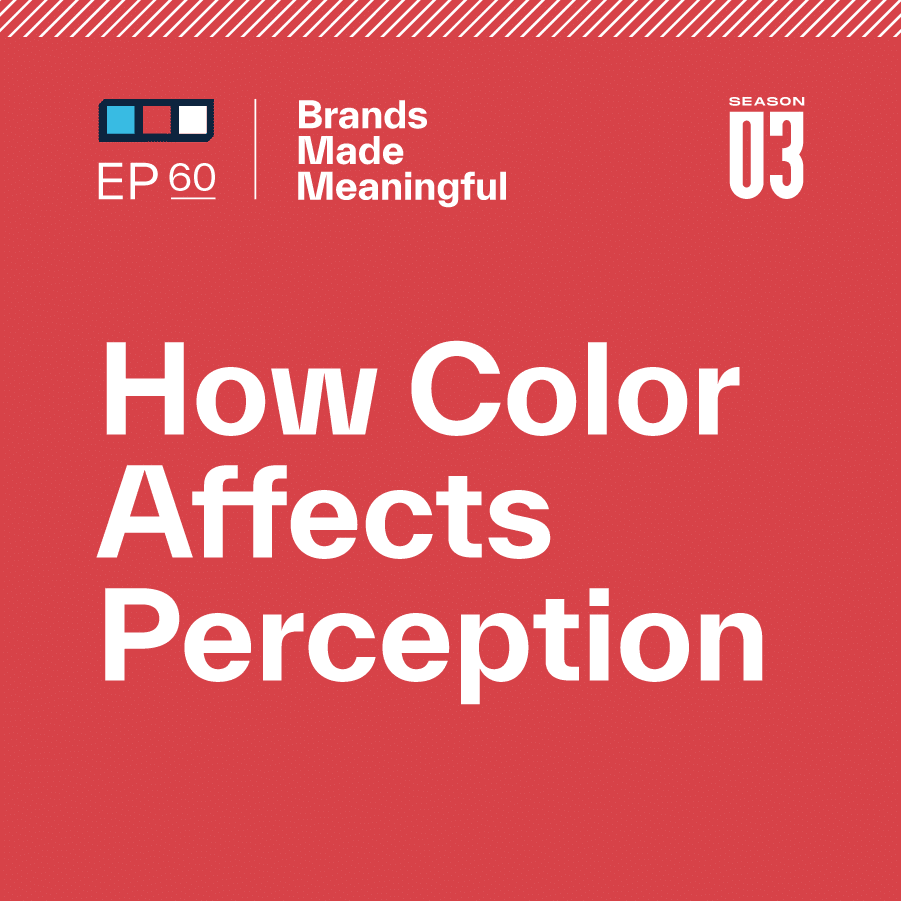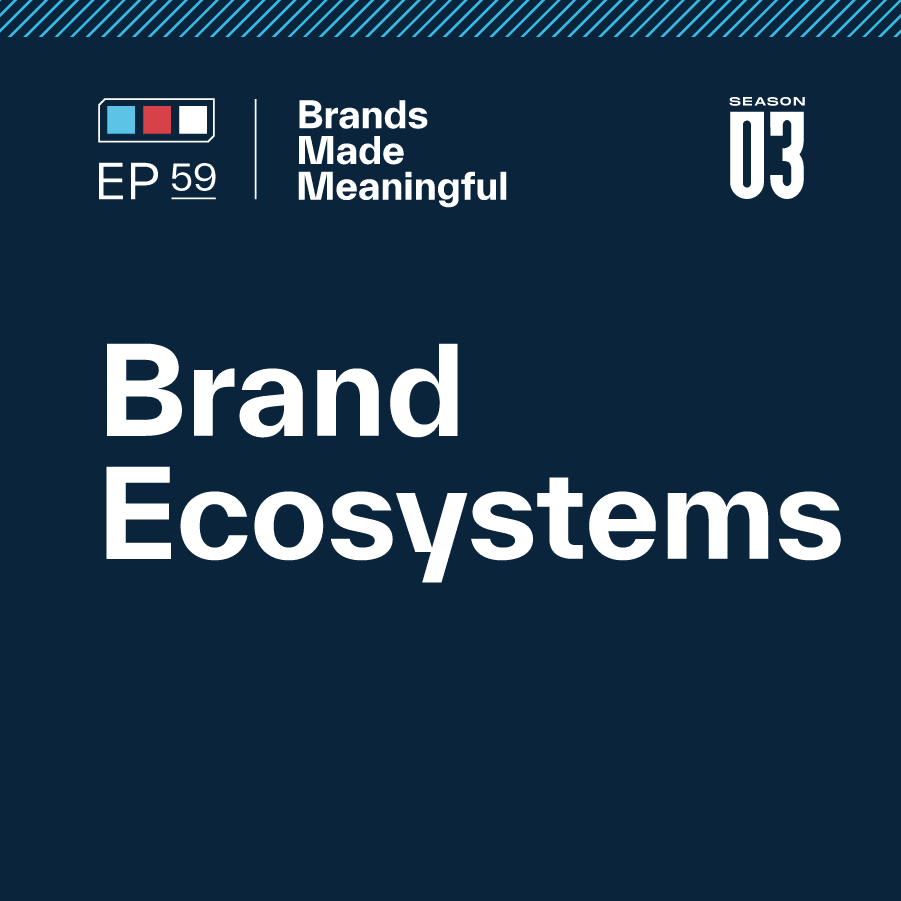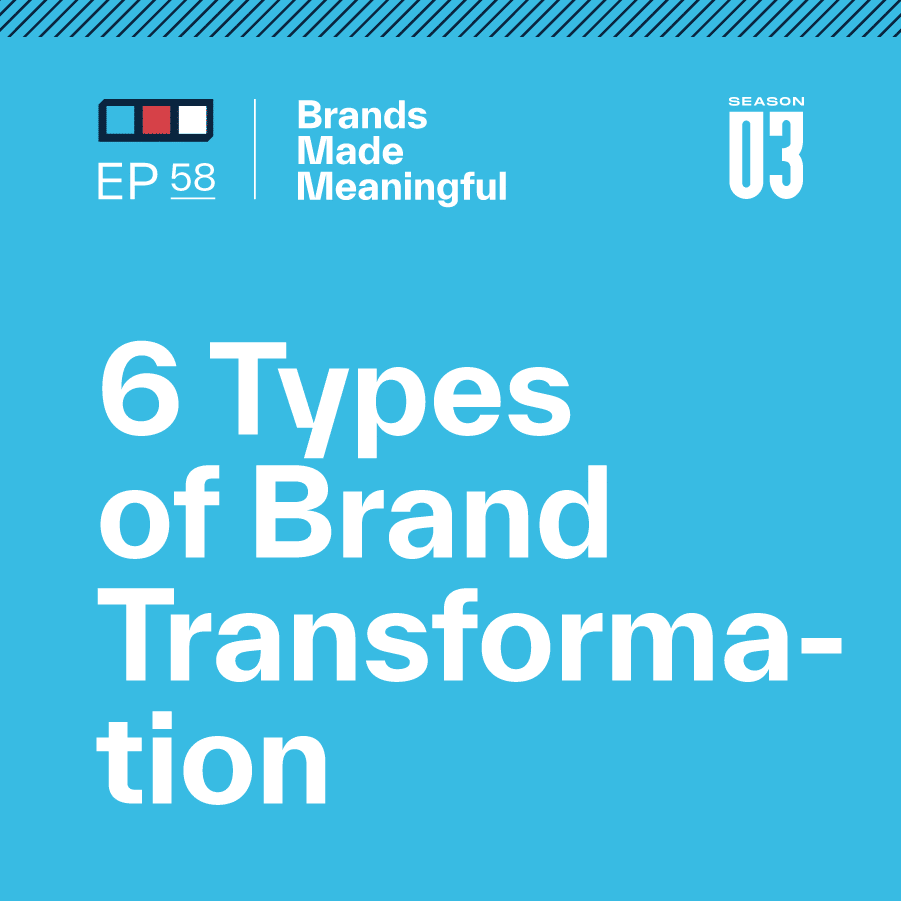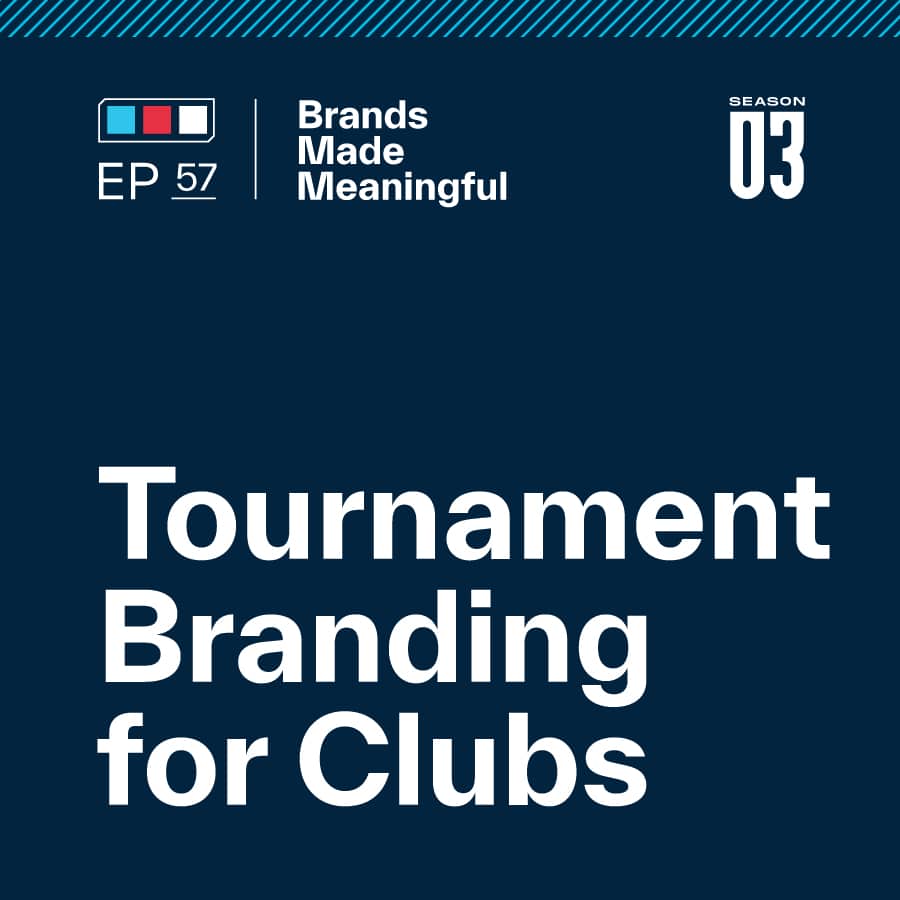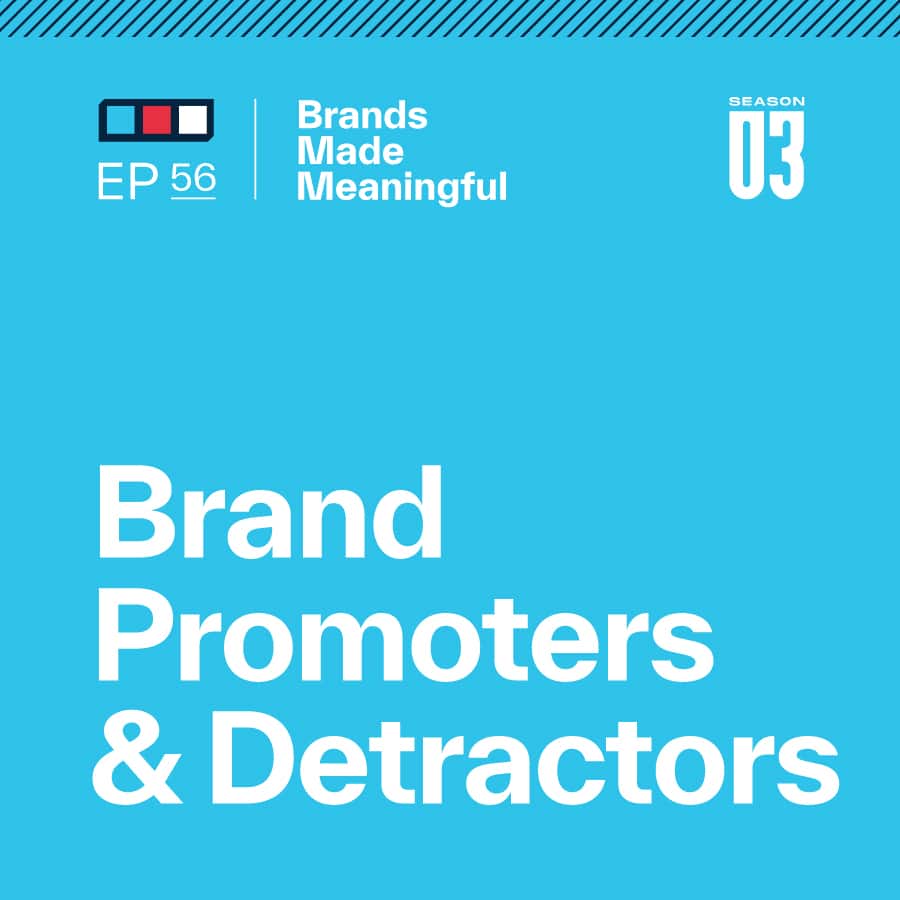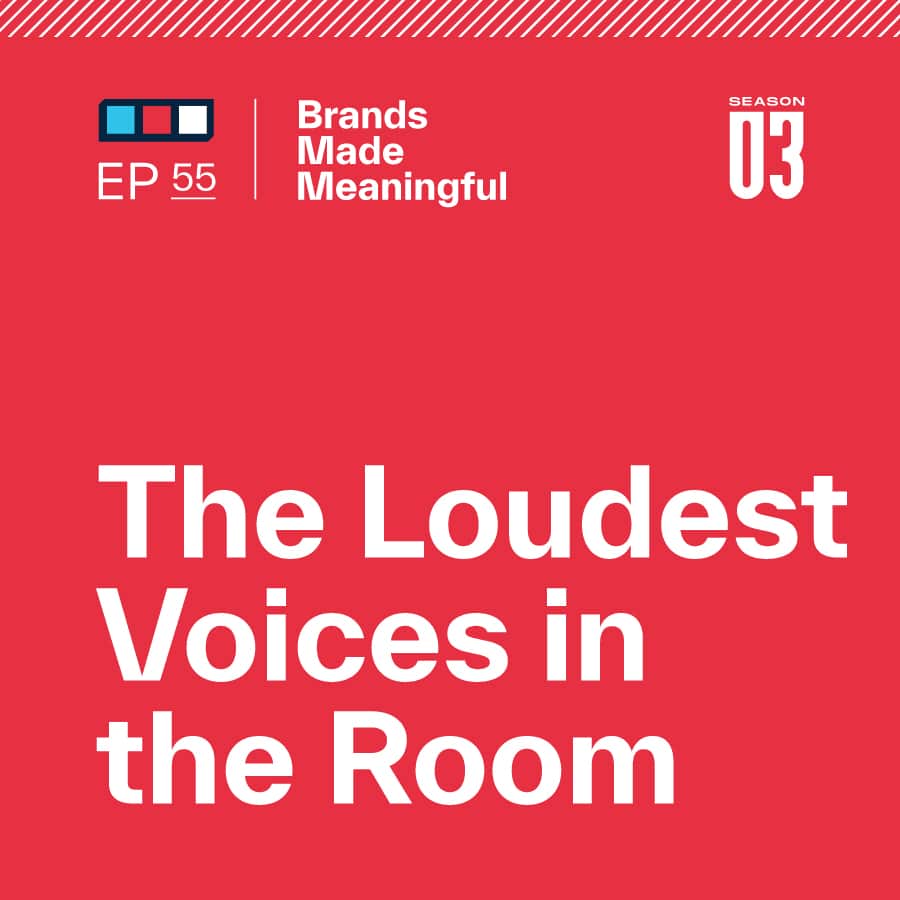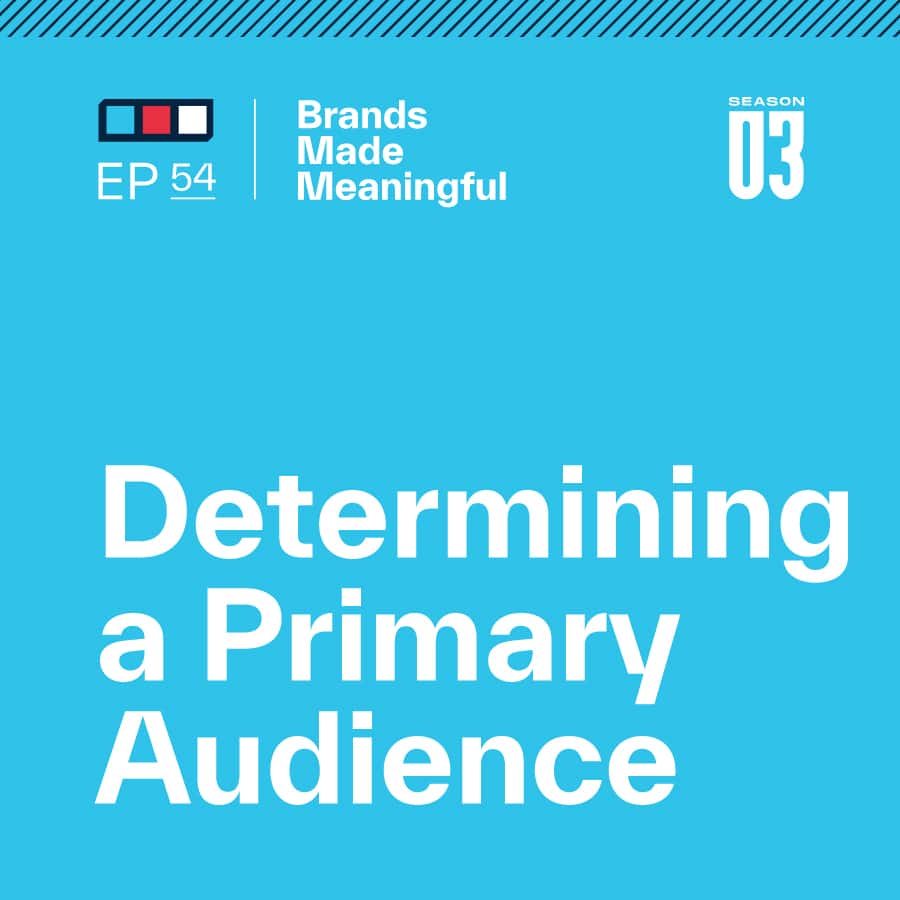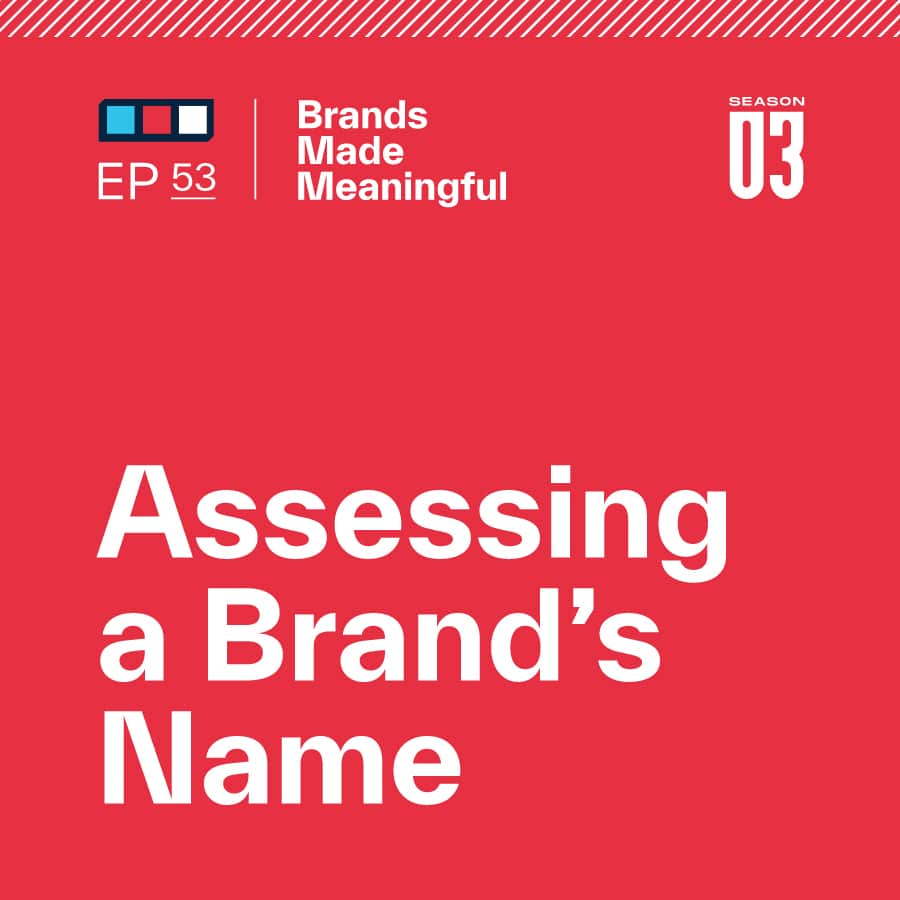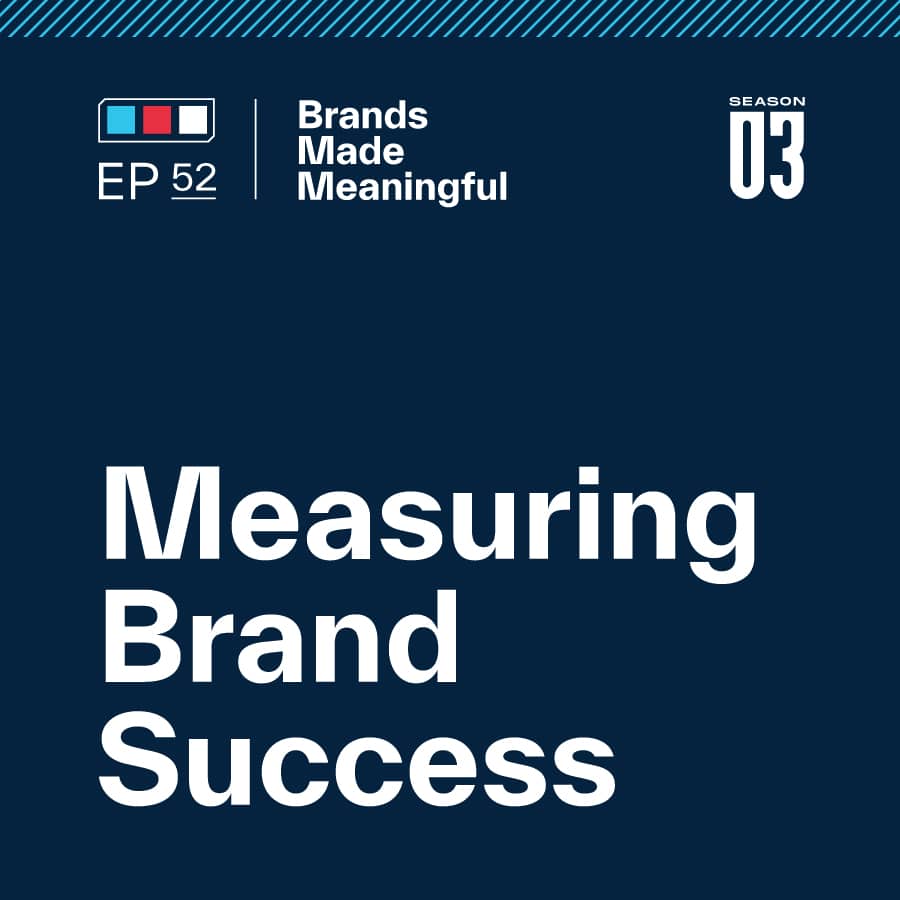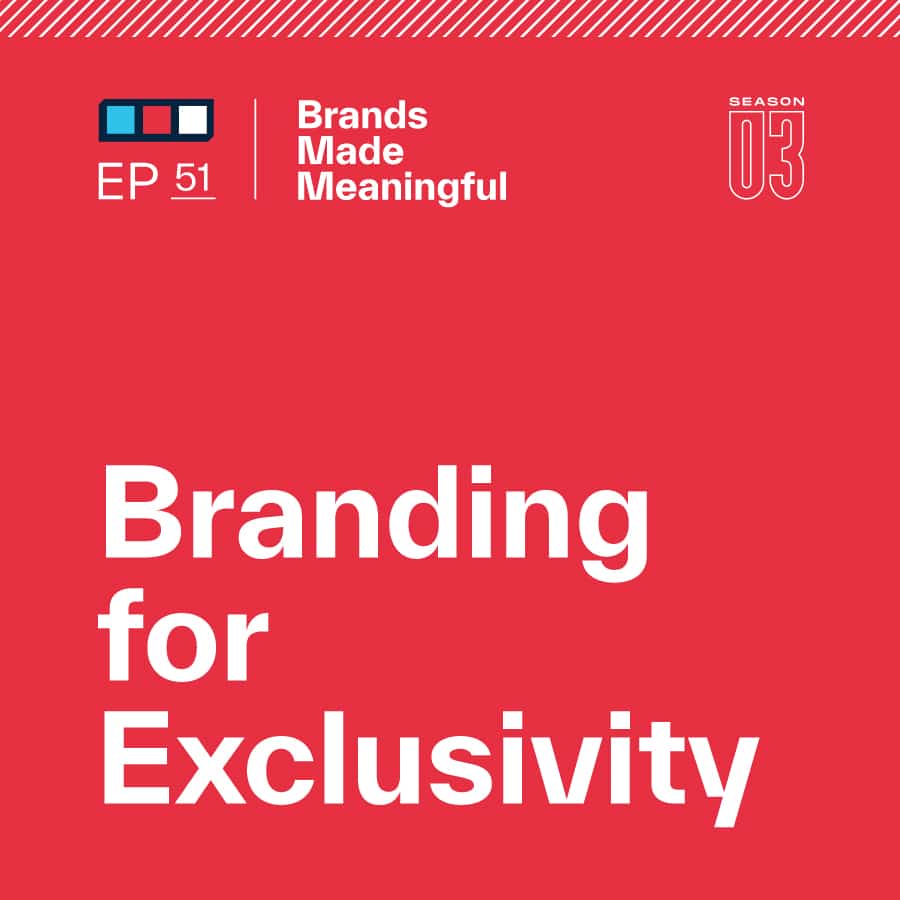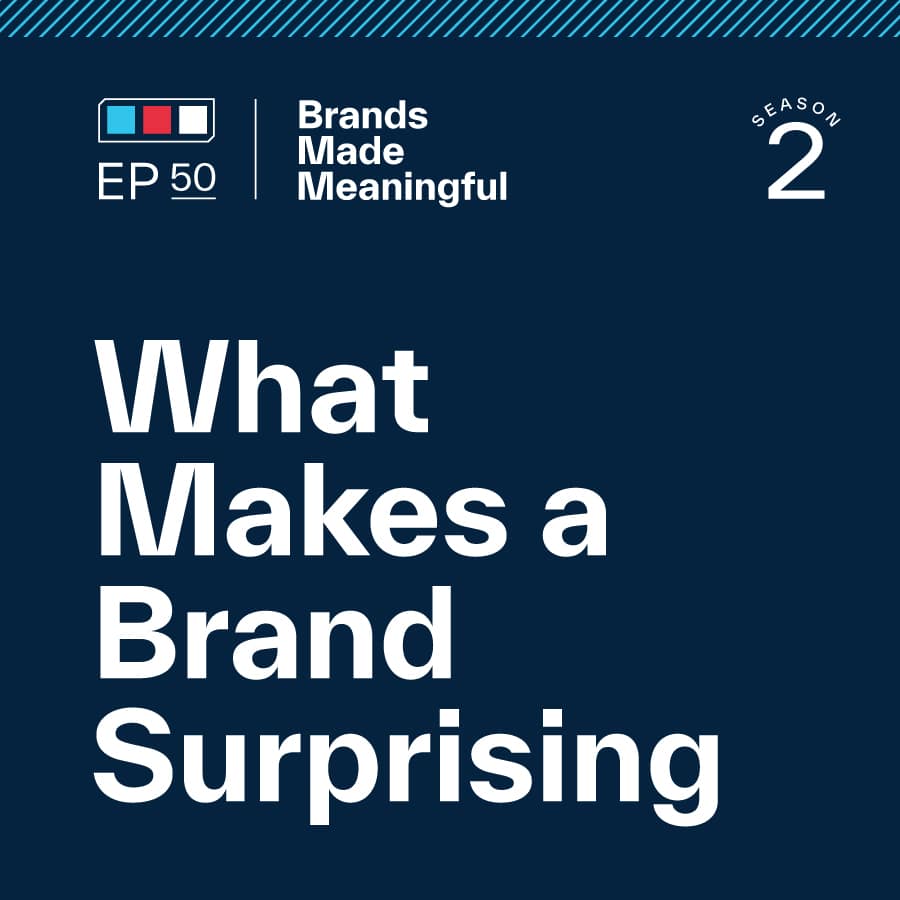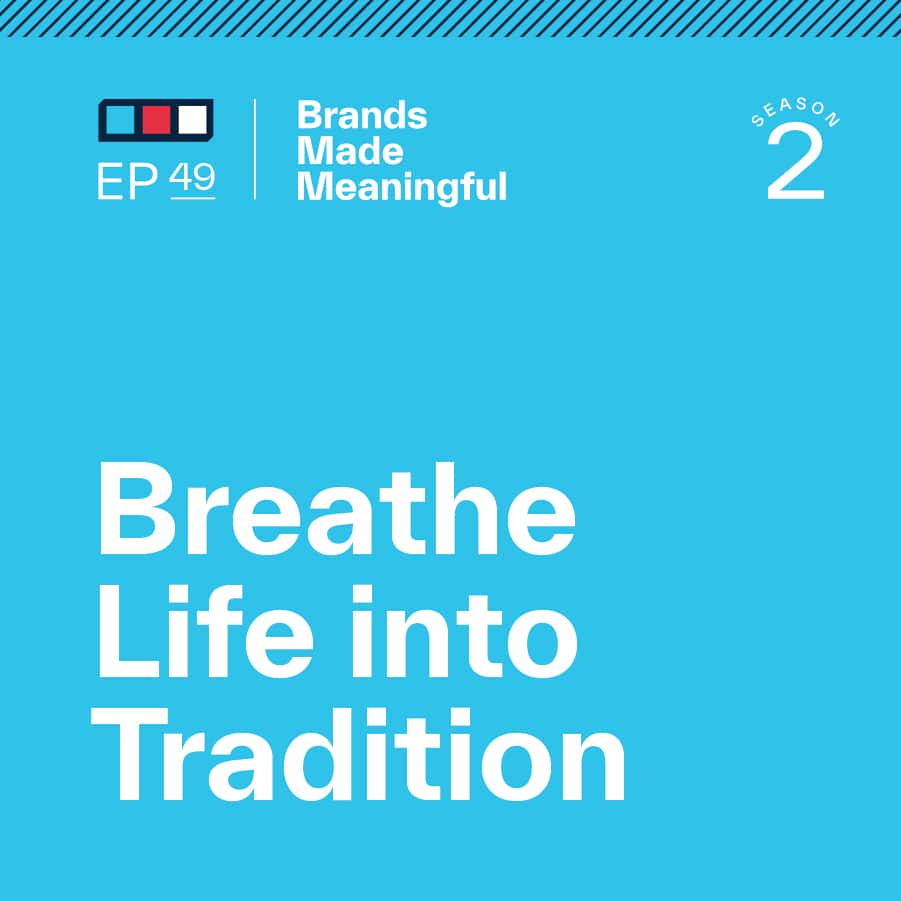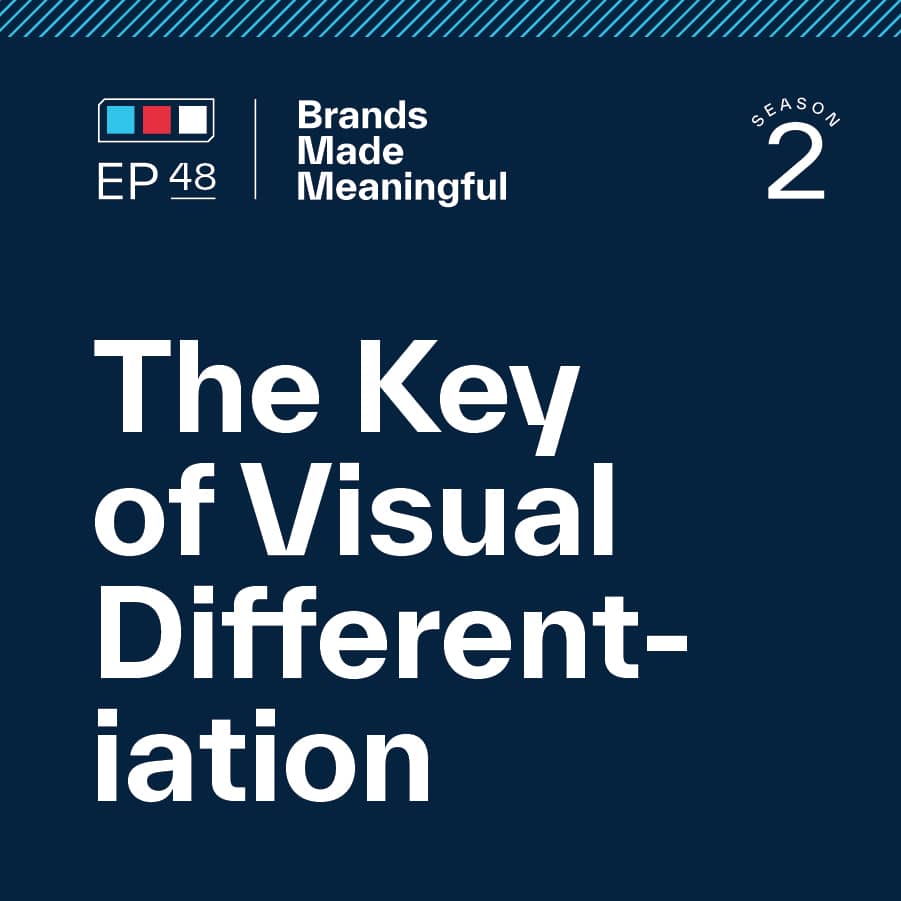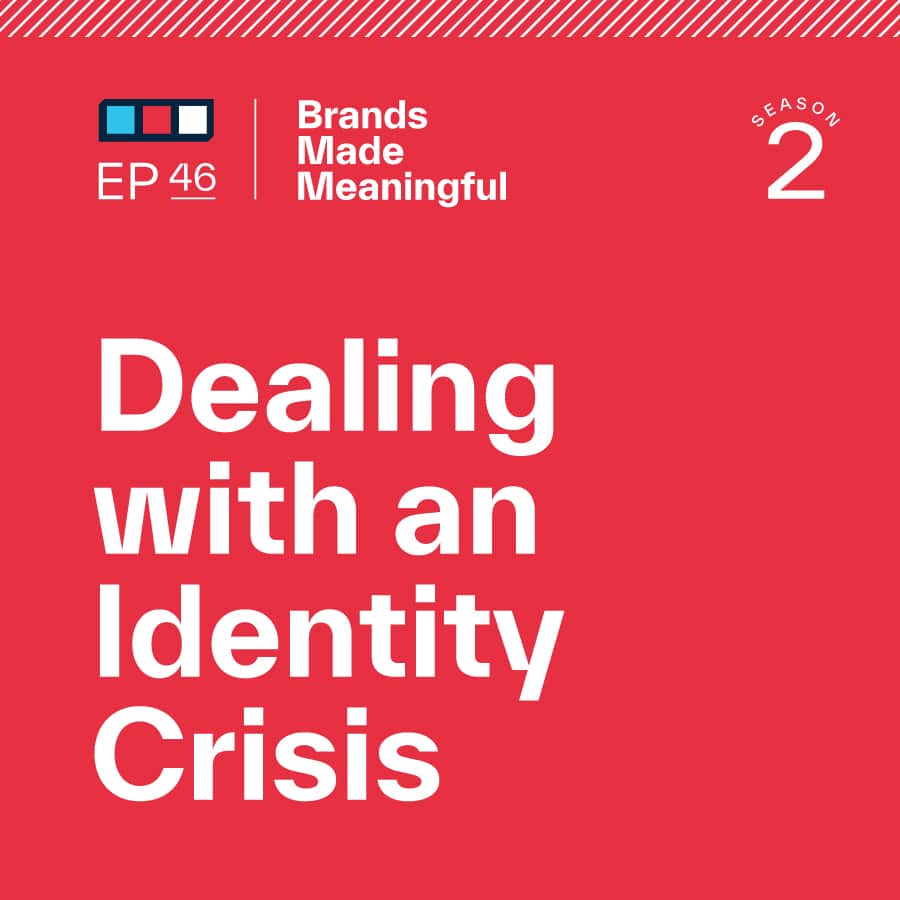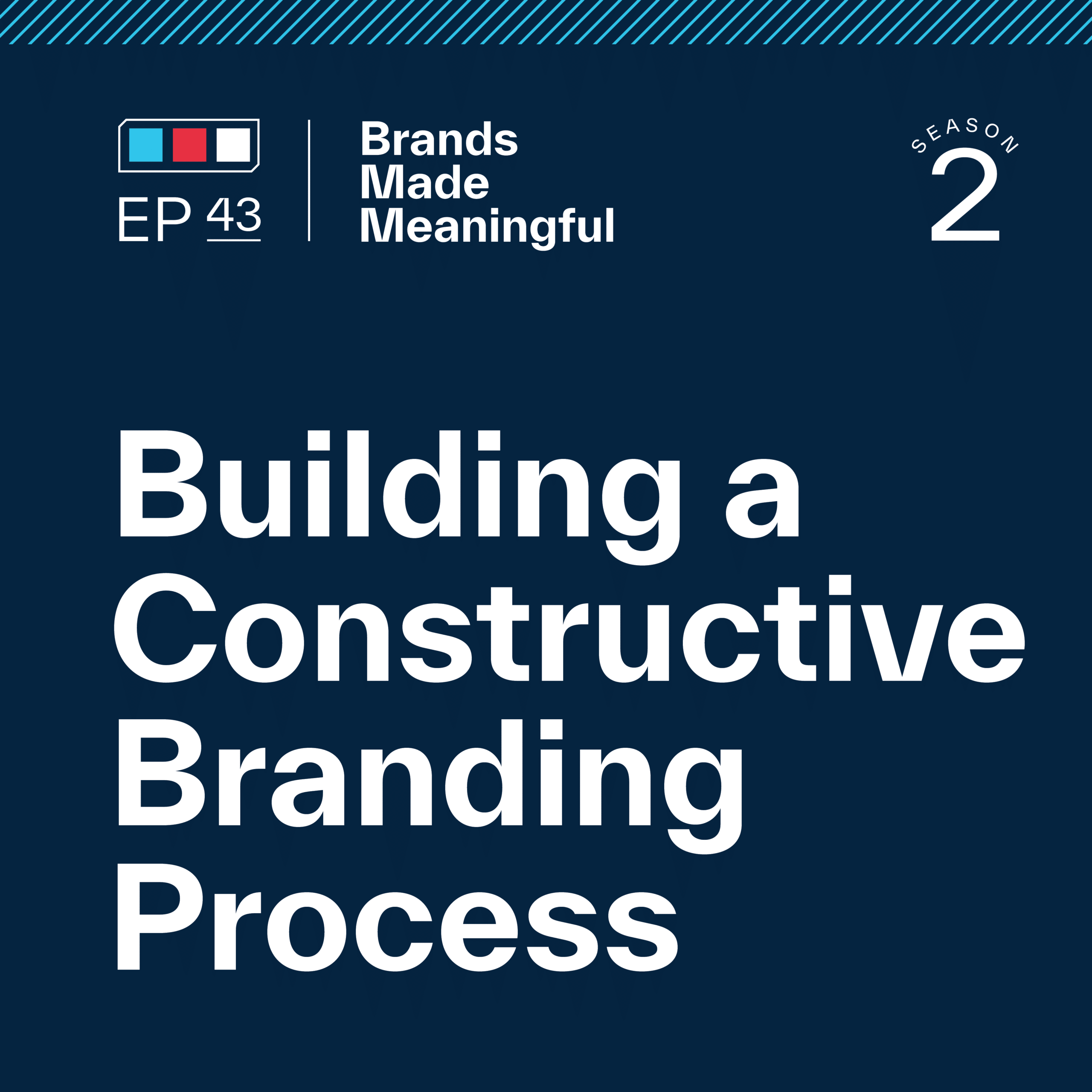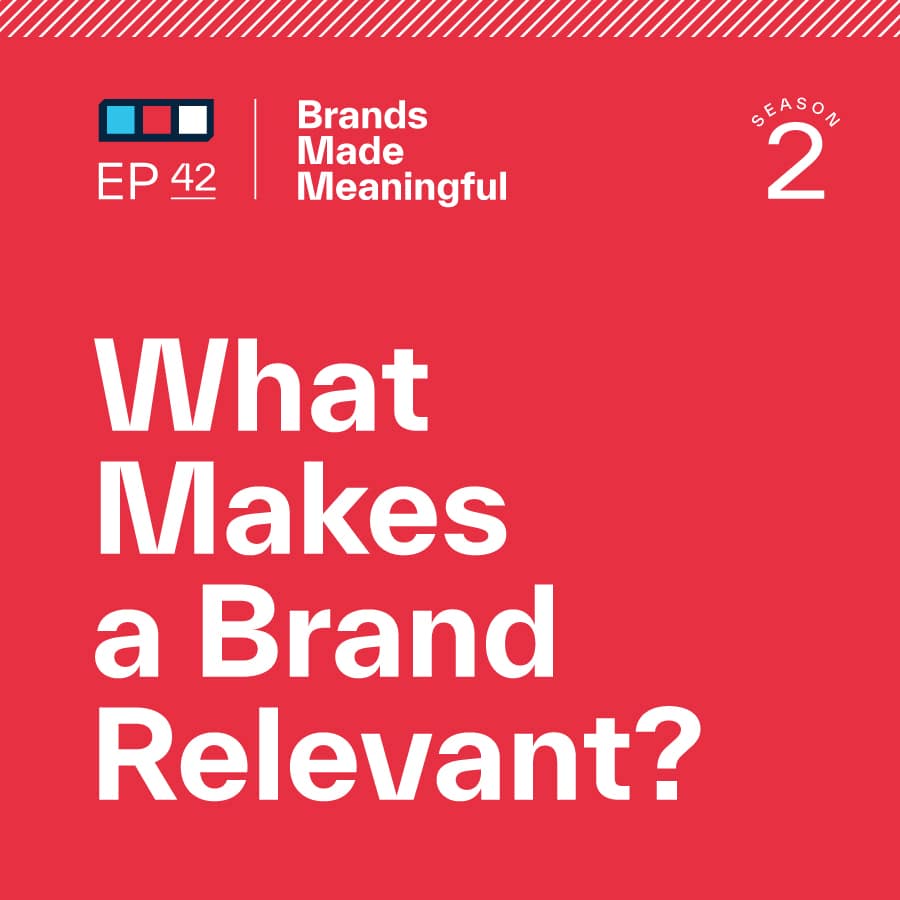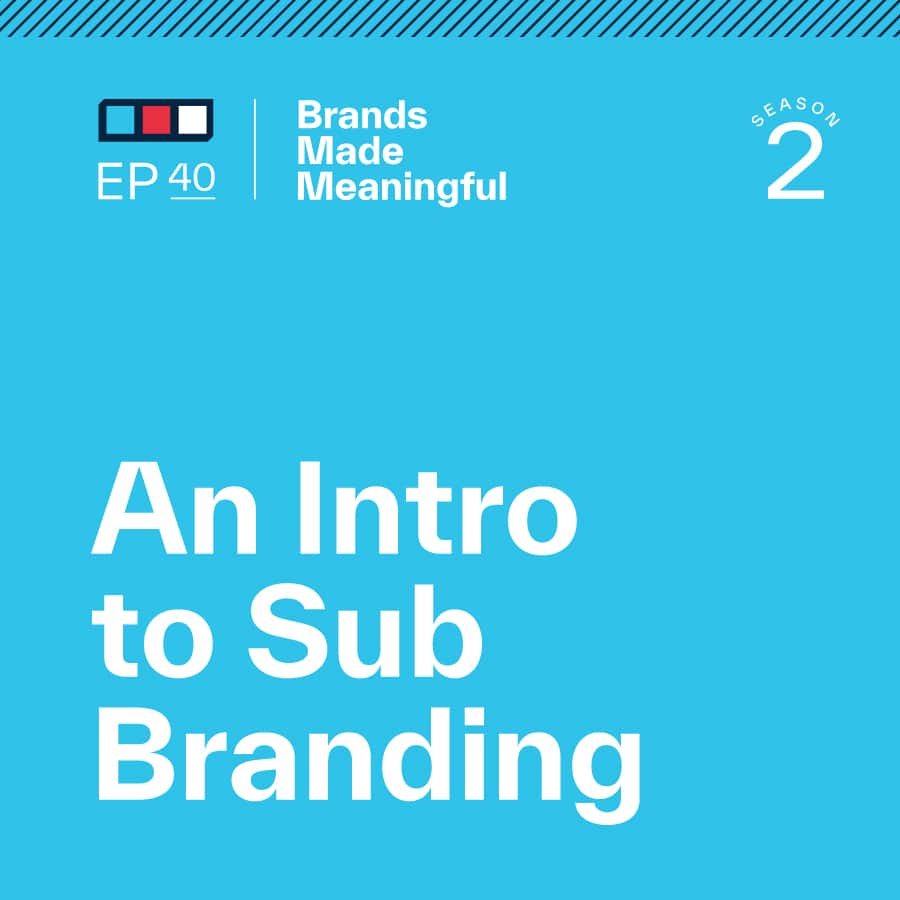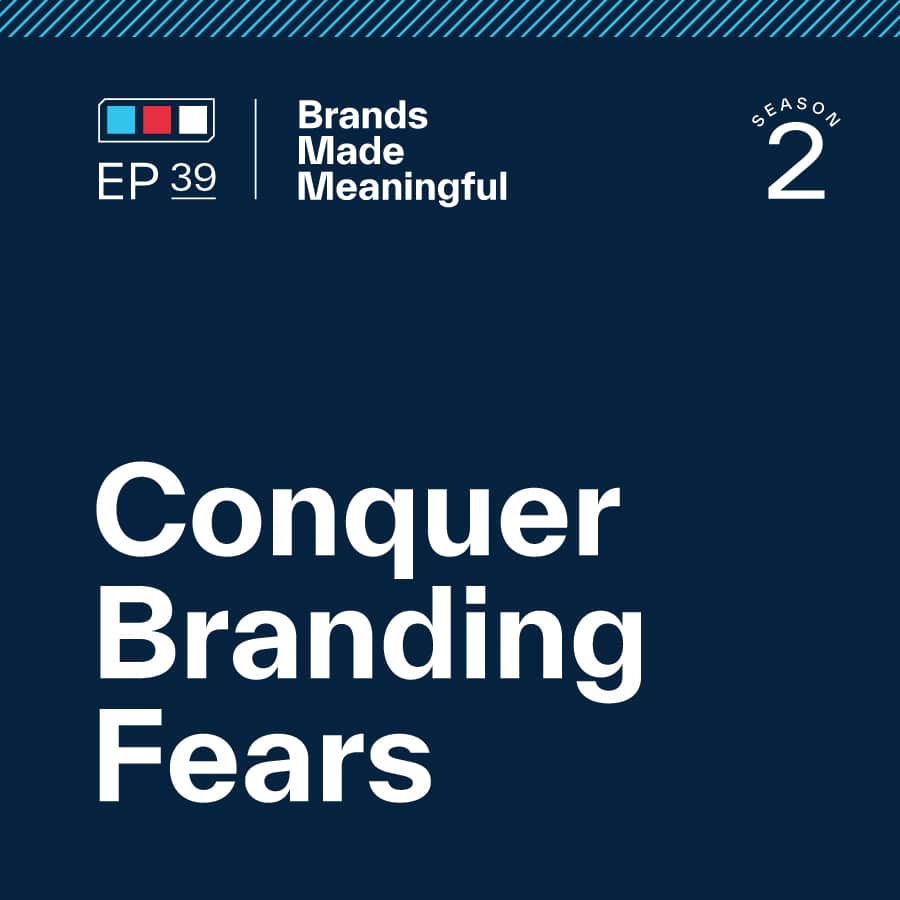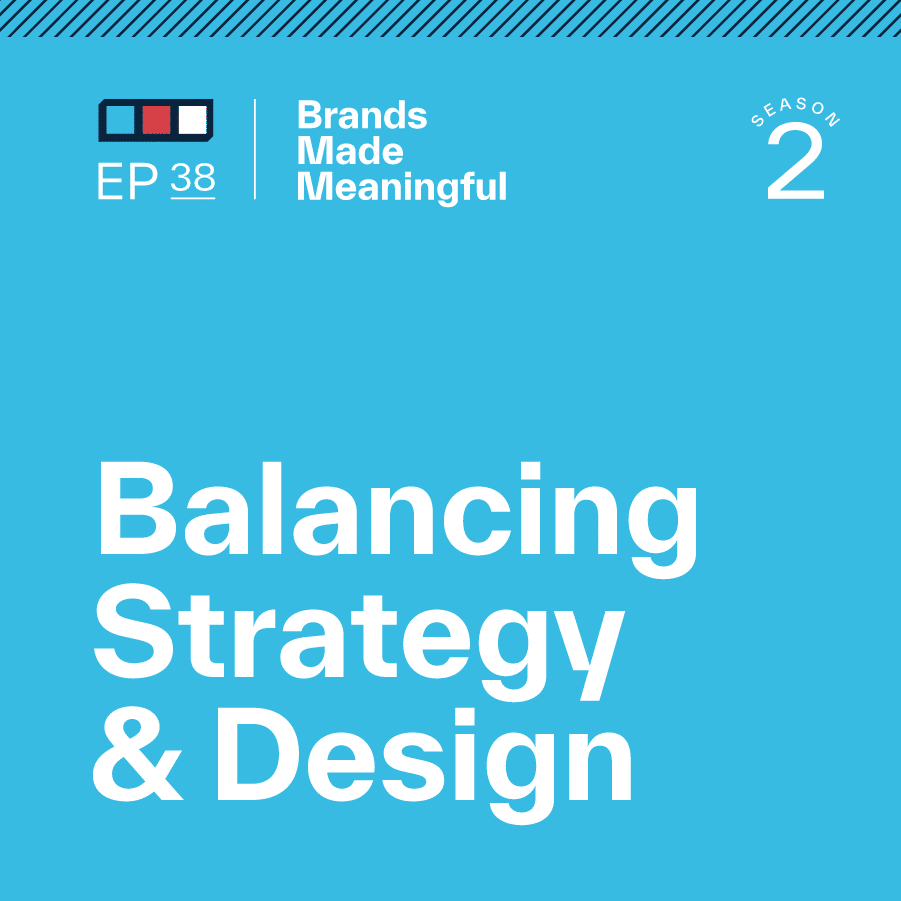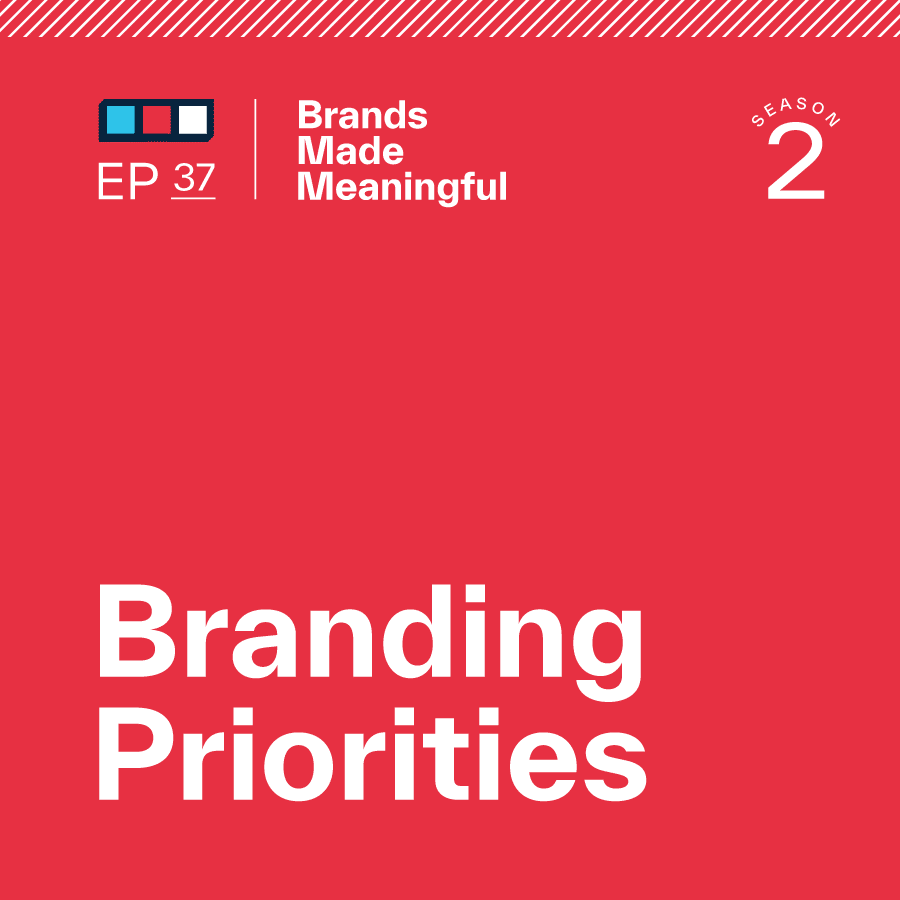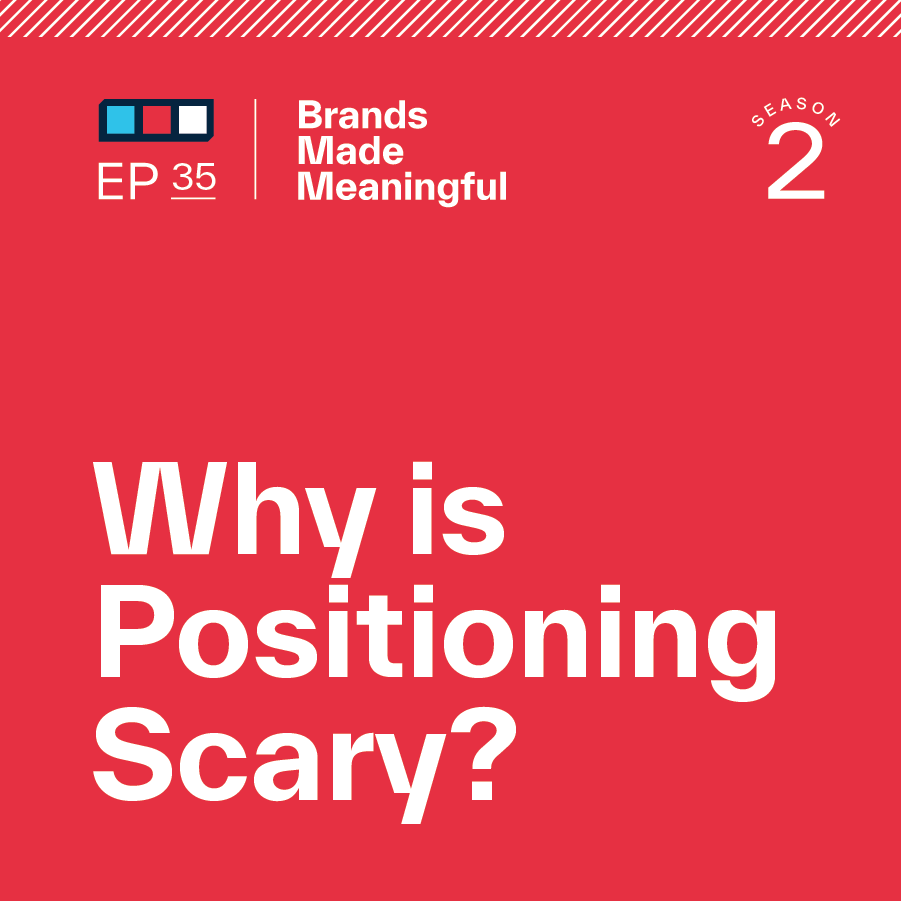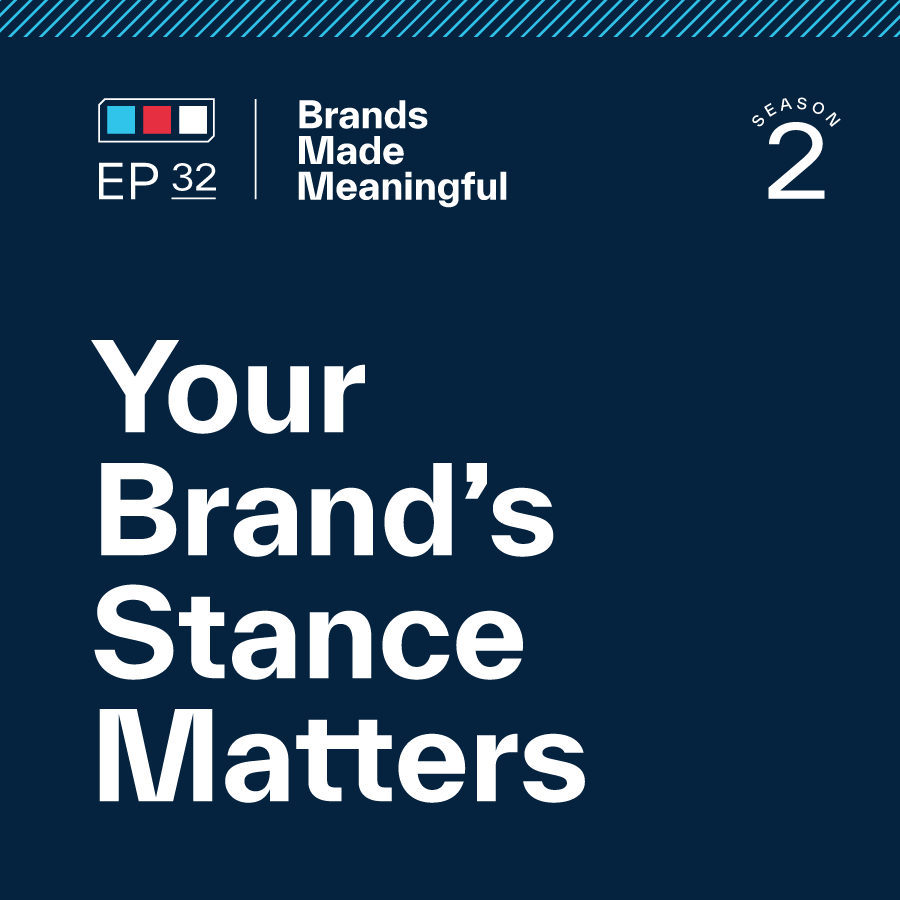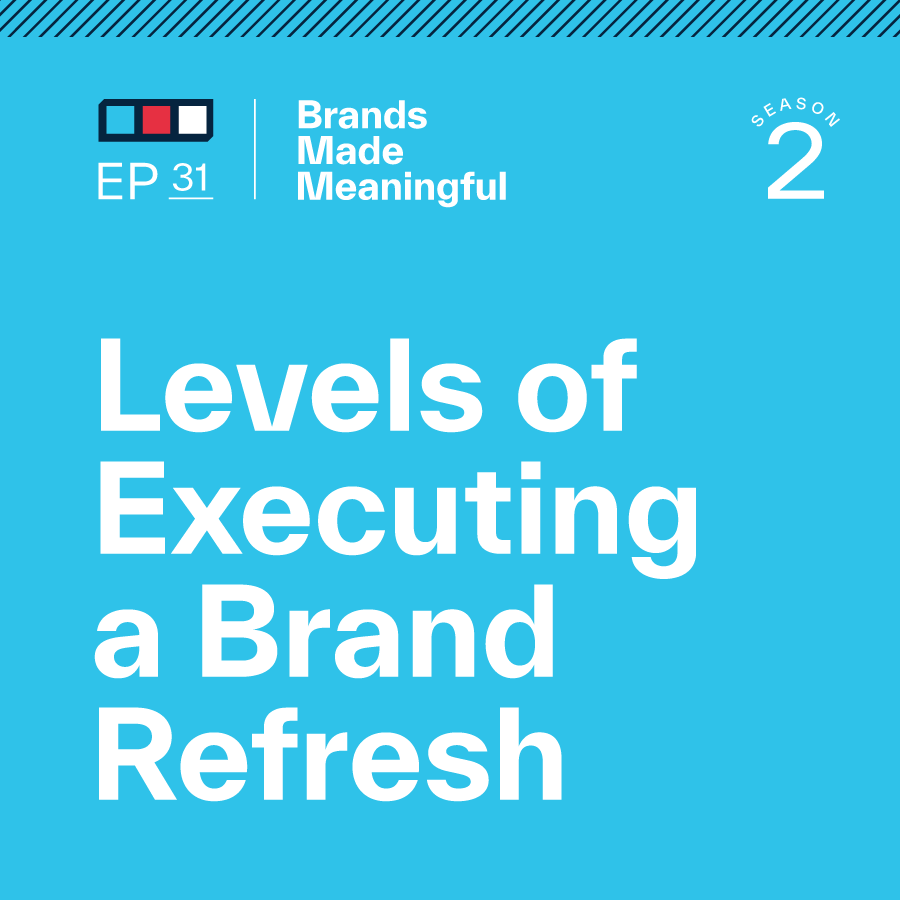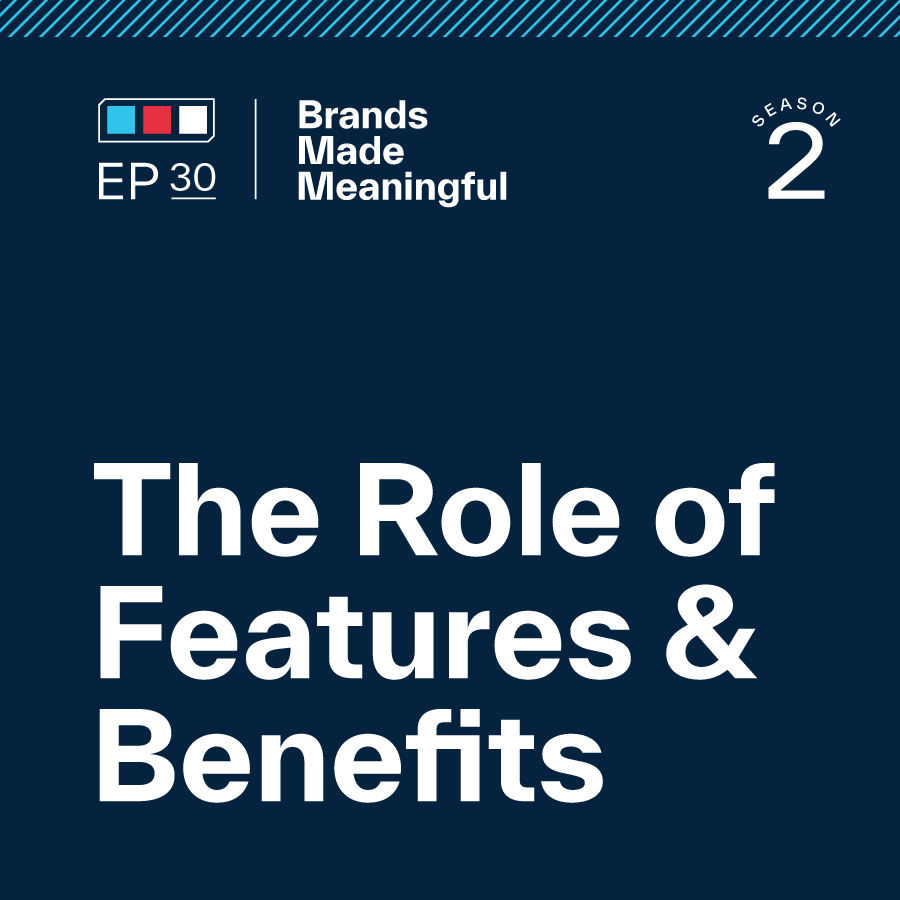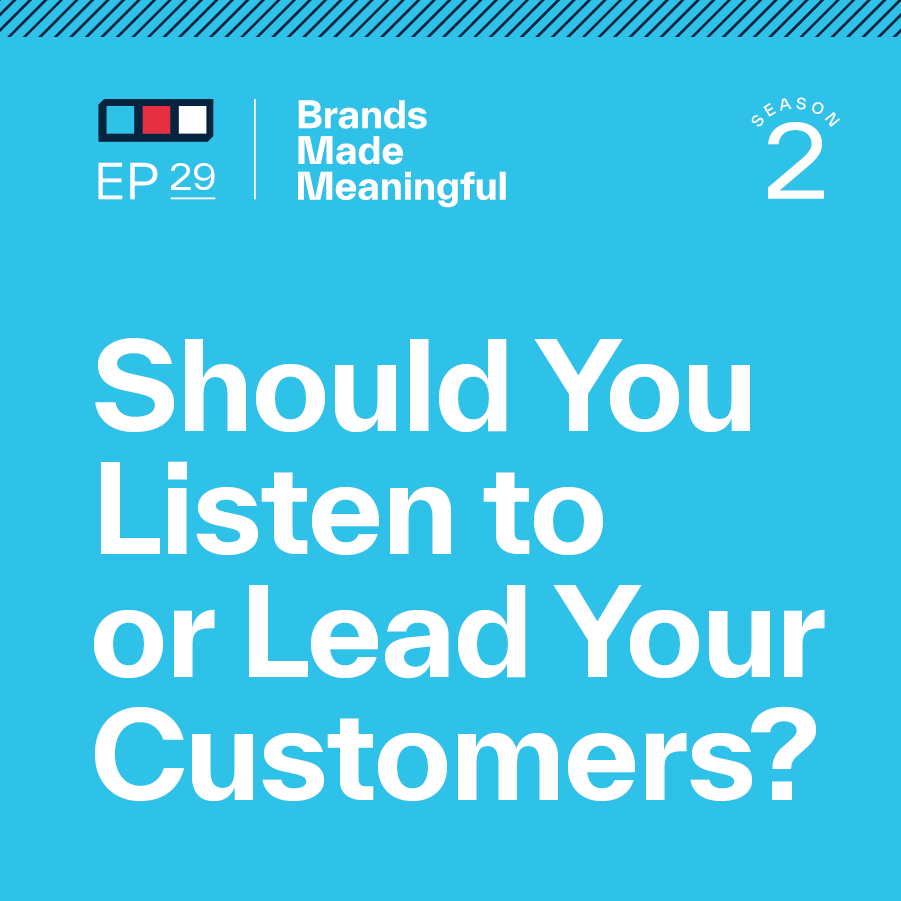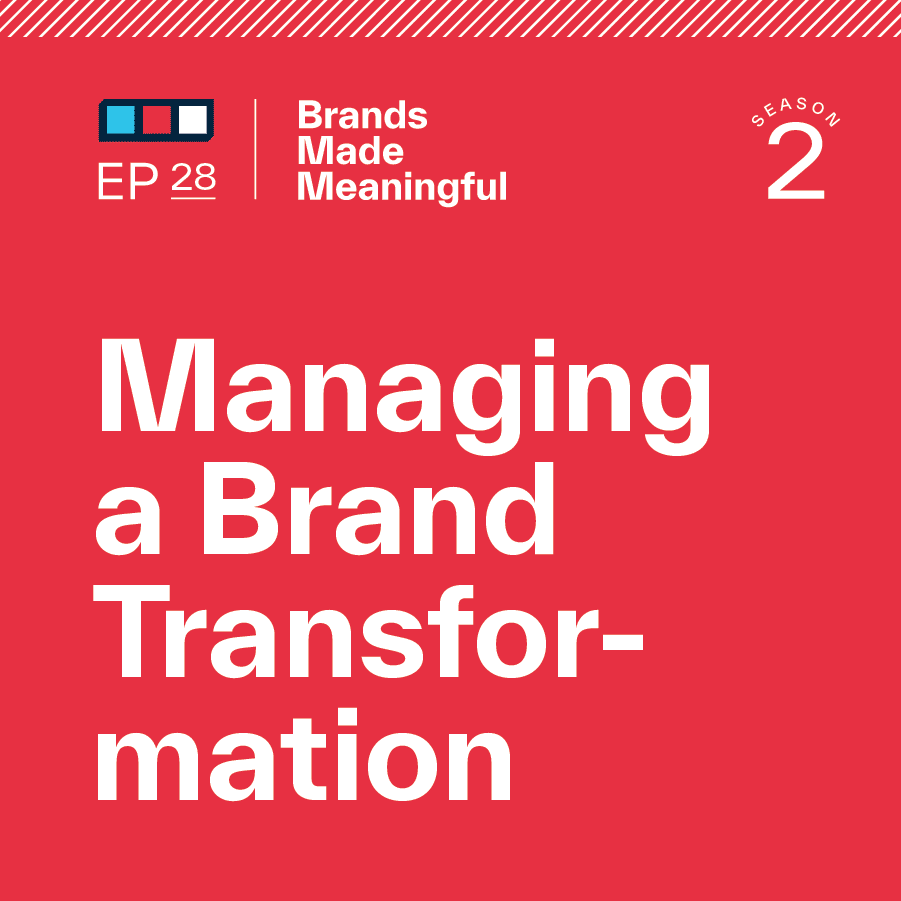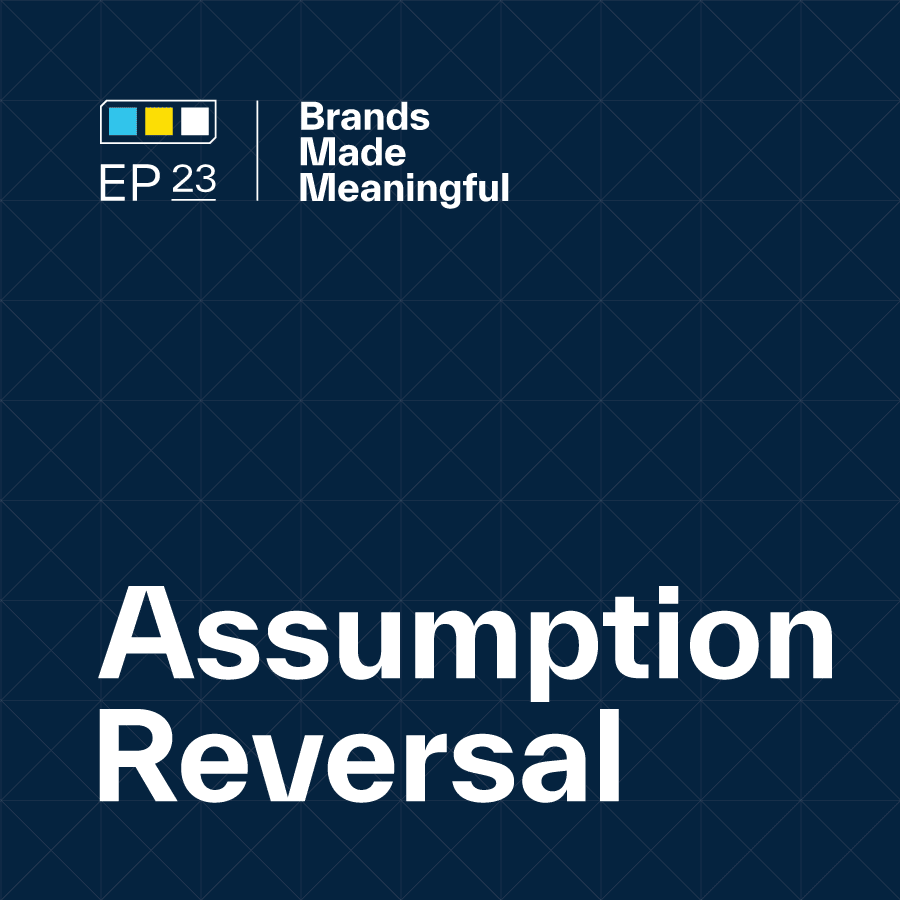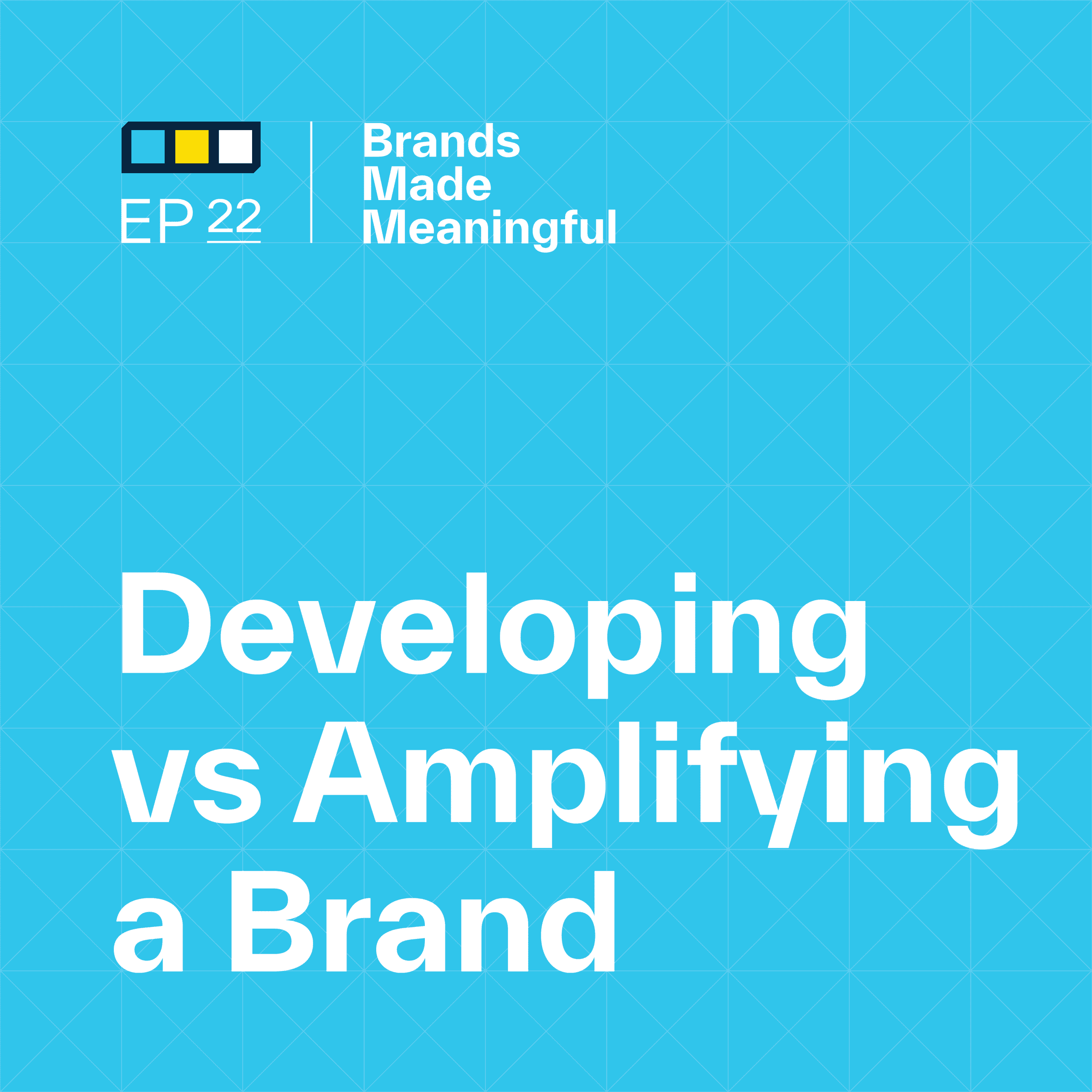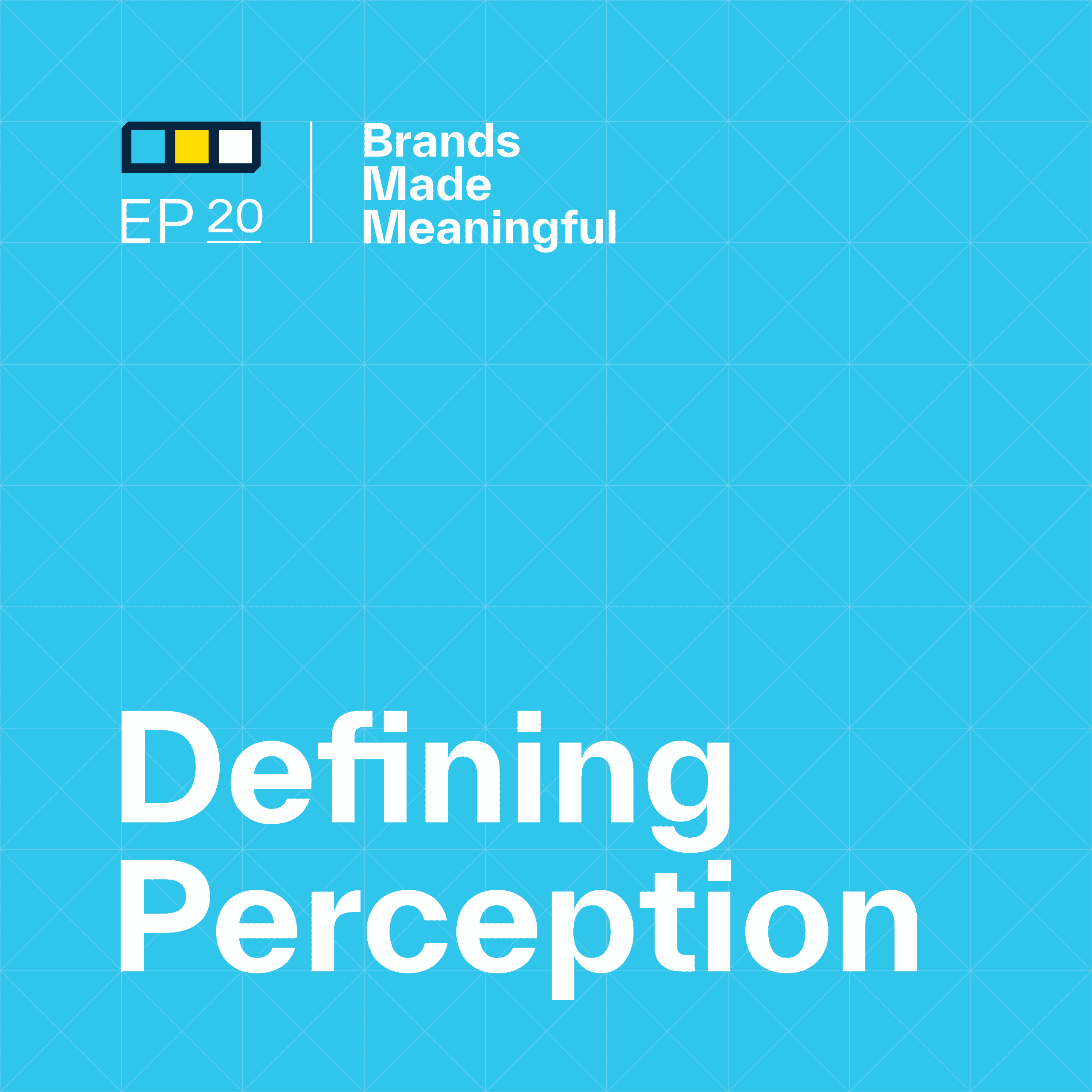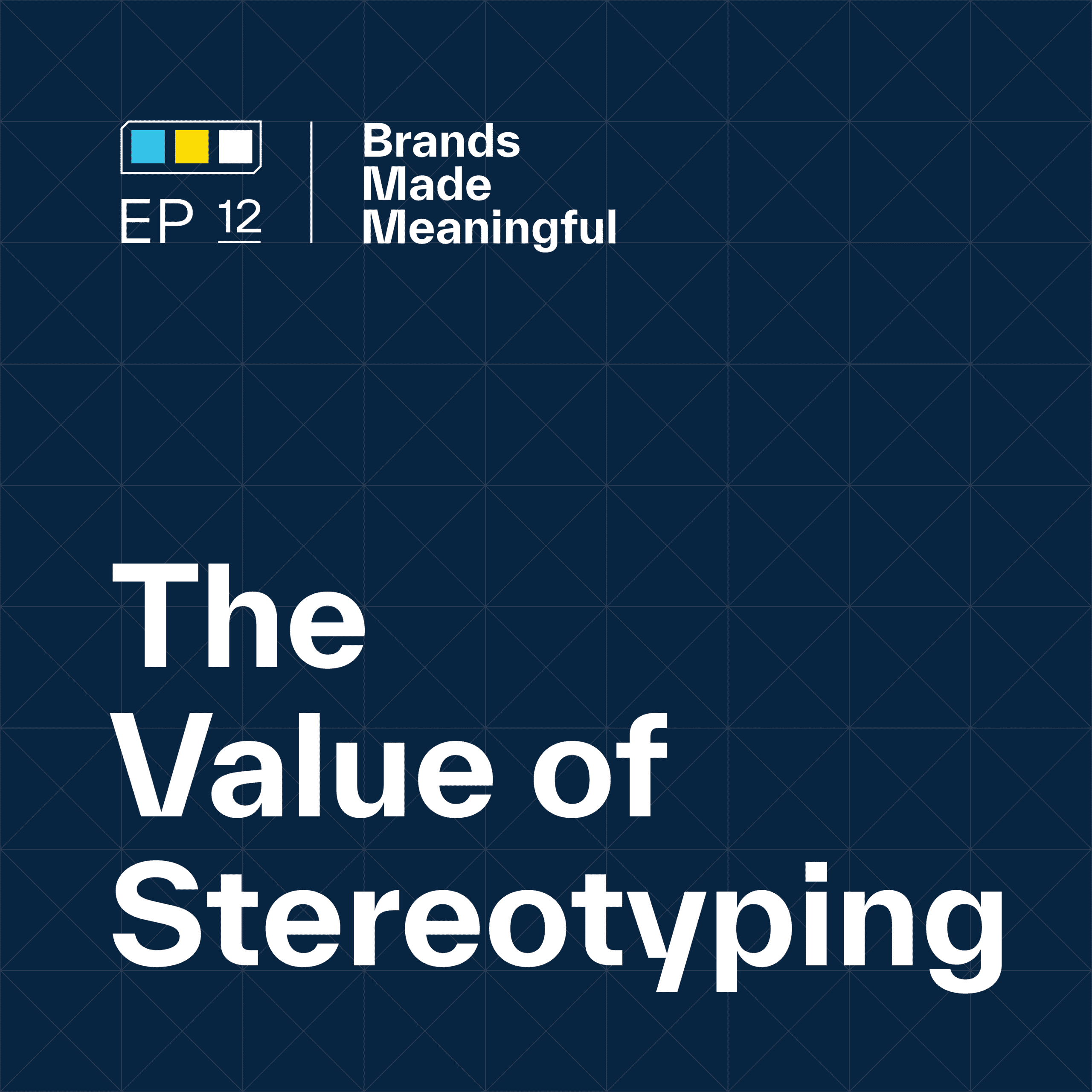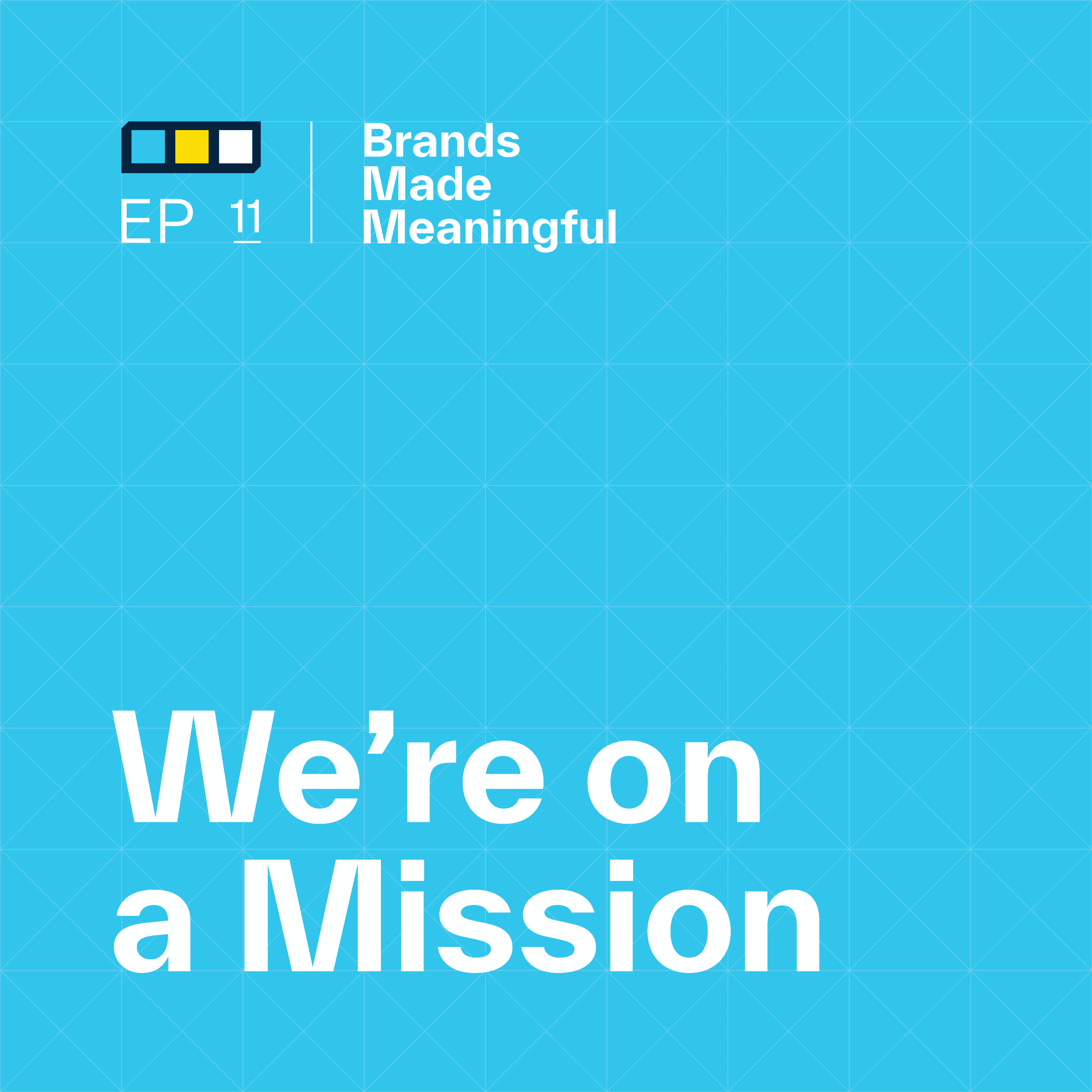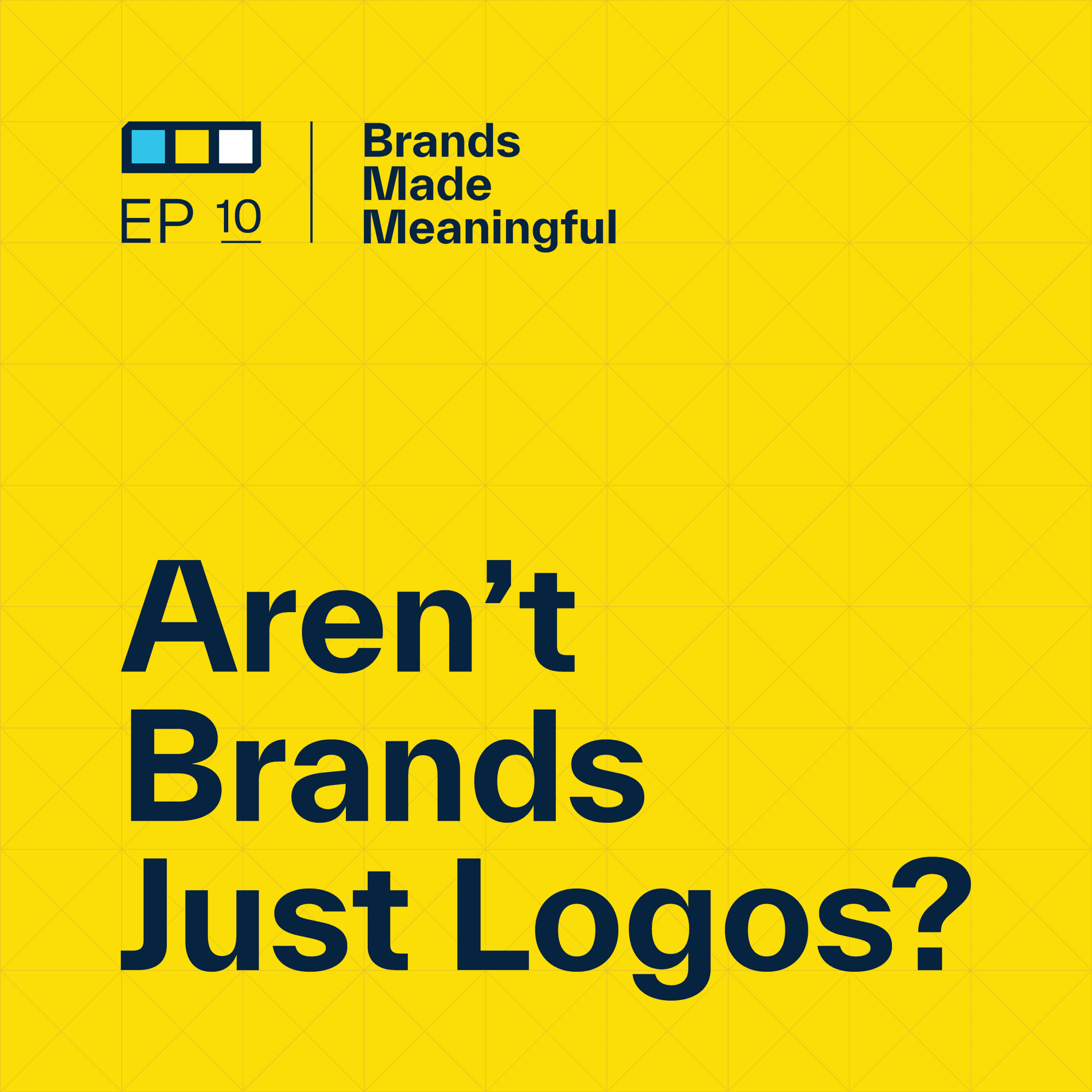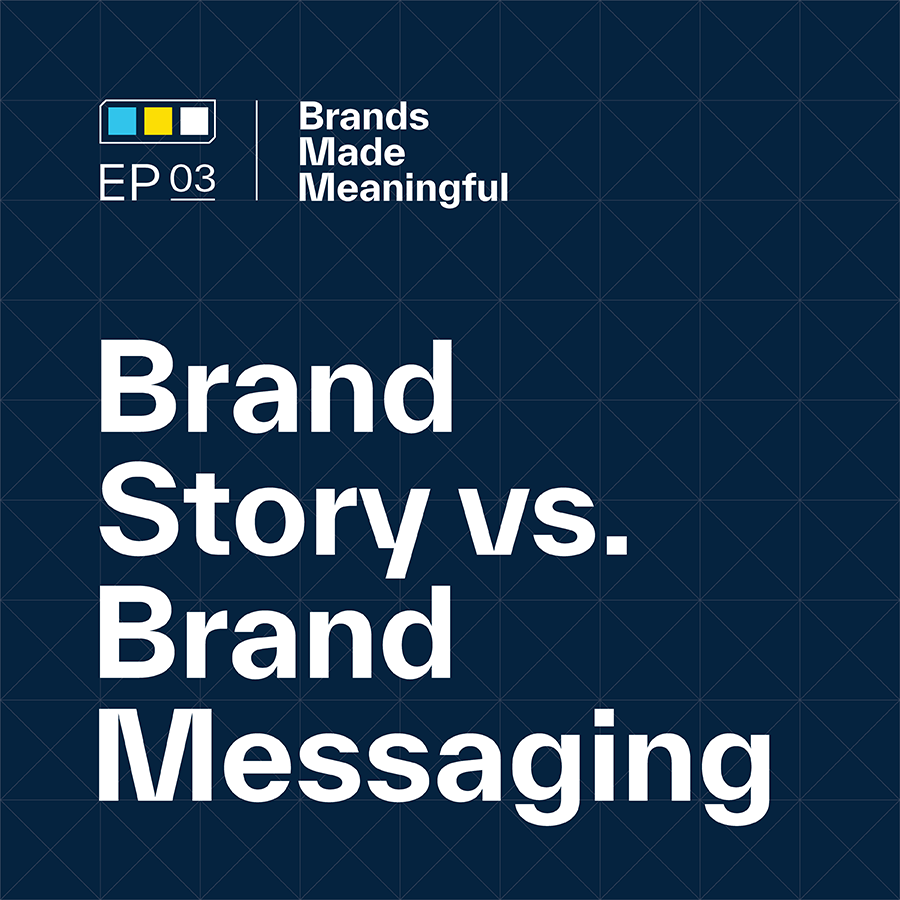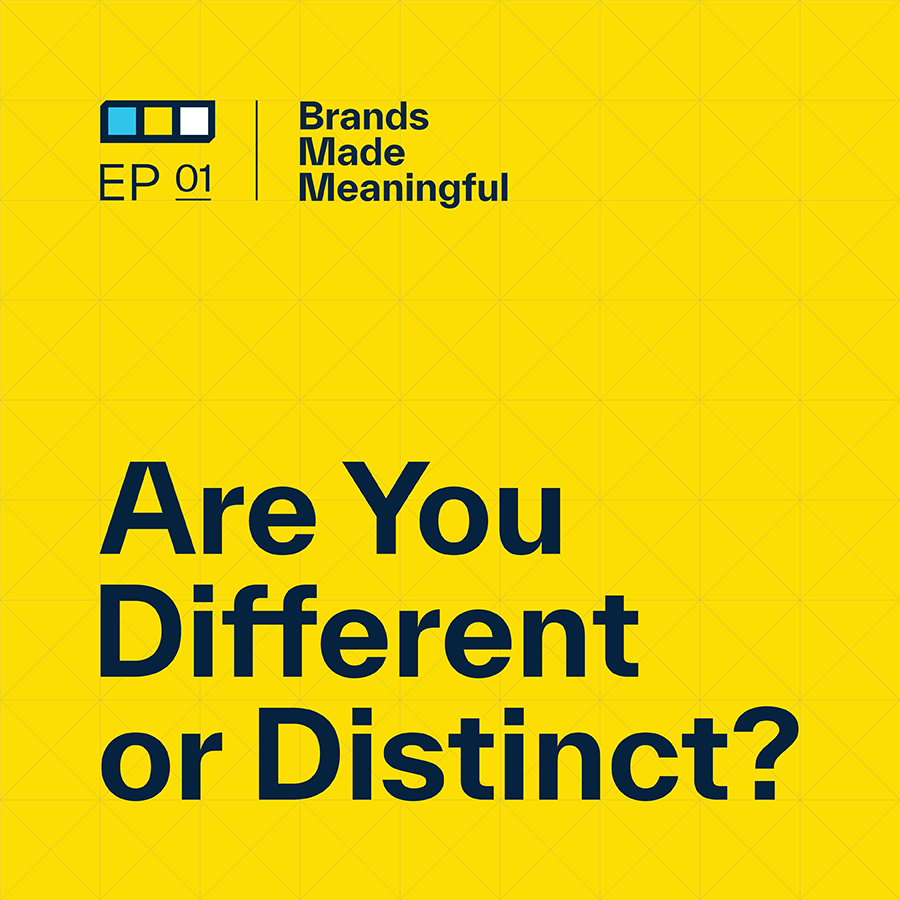EPISODE 45
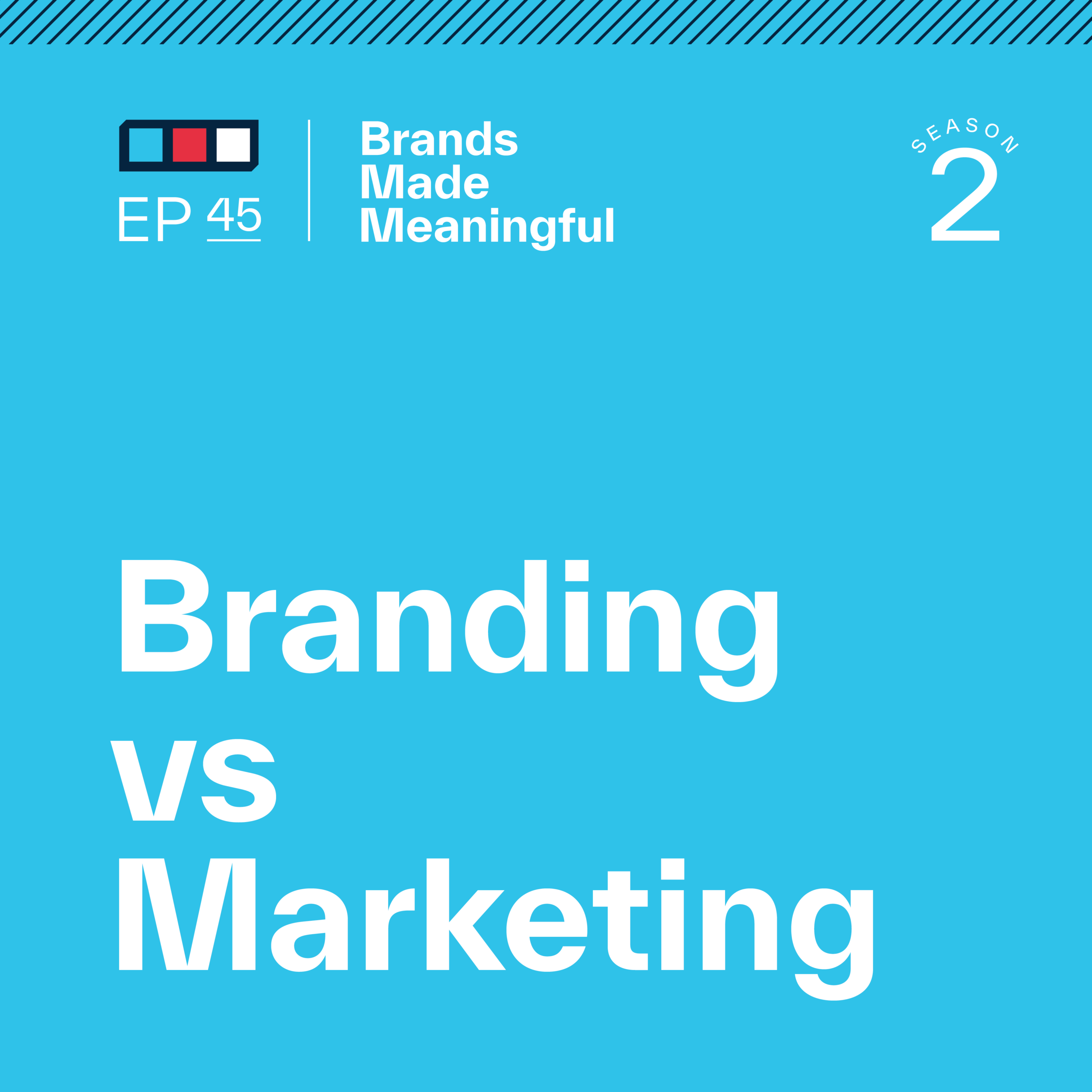
Branding vs Marketing
Episode 45
Derek and Tucker discuss the vast difference between Branding and Marketing and how to make sure the two are complimenting each other.
EPISODE TRANSCRIPTION
Branding and marketing is what we’re talking about today. It is really a nuanced difference to the broad spectrum of business.
Tucker It’s like they’re hand-in-hand and they should be hand-in-hand for sure. But a lot of the people we deal with don’t really understand the differences.
Expand Full Transcript
Derek So it is not sales versus marketing. I think people that we work with tend to understand the relationship between the sales department and the marketing department and some of the healthy and sometimes the not-so-healthy tensions between the two. This is different. What is the difference between branding and marketing? Are they the same thing? Because they’re not. They’re similar and they work together and oftentimes one or the other isn’t successful unless both of them have been done really well.
Tucker I think of branding and marketing as two peas in a pod, or as Forest Gump would say, peas and carrots. They just go together really nicely. But people tend to focus on one and not the other, which doesn’t make any sense because they are perfect complements.
Derek Pippen and Jordan.
Tucker Sure. Which one is Jordan?
Derek Marketing.
Tucker Damn. If we’re going to dumb it down or simplify it as much as we can, we would say that branding is what you say and how you say it, and marketing is where you say it and when you say it.
Derek Branding is crafting your story. It’s having the means to describe what it is that your organization actually stands for. And marketing is how you communicate that story, where you tell that story, and to whom.
Tucker We’ll get into that. I think we should just dive a little bit into the nuances of each of them. So we’ll start with branding because that’s what we do here.
Derek Because branding starts first in the process.
Tucker Branding is all about identity. It is all about establishing, maintaining, and redeveloping that identity. And identity can be visual or verbal. Think about things like that. It can also be experiential. So we get into the episodes that we talk about. There are a lot of things that go down each of those rabbit holes, but branding from a high level is about identity.
Derek Which also includes values. We just talked in a previous conversation about purpose, mission, and vision. That is a core part of your brand’s identity.
Tucker Think about how you identify what you do, what you stand for, and how that relates to everything else in the world. That’s what we think of identity. And a part of that identity is perception, which is a big word in the branding world. I think of brand as your perception. So perception is really how people in the world think of you. As Marty Neumeier would say, it would be your gut reaction when you see a product that is their brand. Their brand is the gut reaction. And that perception, I think, can be tailored. And that’s what branding really is, is tailoring a perception depending on what the strategy is.
Derek So that’s where the logo comes into play or the design of your materials or the tone and the language of your messaging and all of the, hopefully, emotions that evoke in addition to just an understanding and clarity of what you do for a product or service.
Tucker We did an episode a while ago that talked about how a logo is not a brand. A logo is an asset that gets used to craft a perception. So if you thought that brands are just like your logo and move forward, we did a whole conversation on why that’s not the case. But, yes, you are right. The messaging, the logos, the visuals, and the verbals are all tools that we need to use to craft the overall perception.
Derek We know some great brands that don’t have great logos and we know some brands that have great logos but have a shallow, terrible brand behind them.
Tucker Just think about that as a toolbox. We’re just trying to build out the toolbox to be able to craft that overall perception of the organization or the product or whatever brand that we’re trying to focus on. But the key piece of branding is that it is long-term oriented. It is about building trust. It’s about building loyalty, and it’s about building recognition over time. Most people get into these projects and go, Okay, we’re going to want a 90-day turnaround and we’re going to want to see an impact from this in like three months or whatever. And you come back and say, Well, that’s great, but that’s not how this all works. The crafting of a perception takes time. It’s not quarters, it’s years. We’re trying to build into that perception. I think that sometimes gets lost when you have hungry business people who just want to get this done. They want to do it right now and have it make an impact right away.
Derek The behind-the-scenes process of branding relies heavily on brand strategy and brand development. When we get into the activation part of that, that’s where marketing comes into play. But taking the time to be thoughtful and meaningful in that development is what leads to some brands that we created 15 years,18, or 20 years ago still being used successfully today.
Tucker Let’s jump to marketing. When I think of marketing, I go back to like marketing 101 that you take in business school. It’s the four P’s of marketing which would be product, price, placement, and promotion. And when you’re dealing with those four P’s, I’m really honing in on the one that everyone thinks of which is promotion. When they say they are trying to market their business, they think they are trying to promote their business. And that’s totally fair. Think about all the different tactics and activities that you’re trying to do within your products and services. This could include things like social media. This could include things like content and sales teams. That’s all promotion-based and that’s great. The marketing teams that we’ve worked with do hone in on that product, that price, the placement, who they are dealing with, why they are dealing with them, and where and how much should they be charging. And there’s just a lot of nuance there. But some of that is critical for thinking about marketing forward. So when we talk about branding, we’re talking about what story we want to tell. Marketing is like that engine in which we’re going to deliver that story. So if you think of the value we create as a business, then that product and the market that we’re going to go after is the way we’re delivering that value. So there are a lot of nuances in this, but I think that they’re important for understanding how you can leverage both of these ideas and both of these styles to really hone in on how you grow as an organization.
Derek I think of branding as the engine and promotion as the gas. Promotion and marketing in general is all about growing awareness. If you have a great brand and great products and great people and great services, but nobody knows about it because you’re the best-kept secret in your industry, you can’t sell your products and services. So you have to promote it.
Tucker There are probably a handful of people that we work with from marketing teams that would slap your hand by saying that marketing is all about awareness because it’s more than that. But you’re trying to simplify it as much as you can. I’m just trying to make sure people aren’t angry.
Derek I think we only have 20 minutes left. We’re not teaching a class. We’re just clarifying.
Tucker When I really honed the differences between the two. If we say that branding is long-term, marketing can absolutely be short-term. We can run a campaign. We can do things right now that can make an impact today, that can make an impact this quarter. That’s easier said than done because there’s a lot that goes into all that. And that’s why marketing is so important, why it drives us every day. Branding is this long-term-oriented future thinking. Who do we want to be? Why do we want to be it? How can we pull people in and draw them into a loyal state? I don’t want to say that branding is more important than marketing because it’s absolutely not. They are absolutely hand in hand, really important together. But when you look at your strategy to do one, we know that it’s more common to think about marketing than it is branding.
Derek I agree. They do go completely hand in hand. If you have a solid brand and you’ve already put in the work, then your focus should be on marketing. But if you don’t have a story and you don’t know what you stand for, then you need to put in the work to make your marketing meaningful and successful.
Tucker We don’t want our clients or our teams that we work with to feel like they’re wasting time and money when they market. That is the absolute goal for our team to say how we help them not waste time marketing. And that comes back with making them look really good. And I don’t mean as in design look really good, but when we do our job really well here and we craft a brand and a story and a message that’s really meaningful and really resonates, it makes all the marketing just payoff so much better. It makes it more effective. It makes it easier to make decisions when you’re marketing. It makes it easier to build out really great content. It makes everything so much easier that I think that gets kind of subdued as well because there are a lot of people, especially in the creative agency world, that feel like what they do is better than what marketers do. But that’s not true at all. I think that they are teammates and that’s the way that we see it here.
Derek I think branding tends to be a once every handful of years initiative as long as you’ve done it. And I think marketing is an ongoing, nonstop, consistent effort.
Tucker Branding should be as well if you’re doing it right. Most of the brands that we’ve worked with that do it really right are evolving over the course of years instead of saying, We’re going to do this in 2015, we’re going to do it again in 2023, and we’re going to do it again in 2030.
Derek The heavy lifting comes upfront.
Tucker So why does this matter? Why do we do it? Why is it important to have both? And what can someone get out of that?
Derek When you have a synergy and a positive working relationship between both branding and marketing, first and foremost, it gives you what we call a brand foundation. It gives you the core, the basis, the strategic foundation that helps everything stand out and resonate and get noticed.
Tucker Think about the assets. I go back to the assets every time to say if you were marketing everything, wouldn’t it be great to be able to look at your toolbox and go, Oh, let’s use these things right now? Because that’s going to resonate with this audience. That leads to having a good foundation for what you say and how you say it. It is going to really lead to success down the road. It’s also going to lead to the second point, which is consistency. We’re going to say the same things. We’re going to be the same person. People are going to start understanding who we are and it’s going to resonate with them over and over and over again until it’s like, Oh, yeah, I know you guys, you guys do this, that’s great. I need that right now.
Derek Somebody smarter than me said the quote that it takes seven times for somebody to hear something the first time, which is a marketing point that a lot of that language needs to be said over and over and over. And even though that message might change a little bit here and there, to have the confidence in being consistent because you know what you do and what you stand for and you believe you have a message that’s going to resonate with somebody, was incredibly helpful.
Tucker So those two things – having a great foundation for your brand and marketing to work together leads to consistency, which then leads to loyalty, which is really important. Fostering trust and all these great things where marketing efforts are more impactful because the loyal customers see it and buy into it really leads to a competitive advantage. So it’s kind of like a domino effect. If we can build a great foundation with teams and come back to their marketing team and say, Here’s what we’re going to do, and here’s how we’re doing it. And over the course of time, we’re working together to leverage those pieces correctly across the different channels and marketing efforts that you have, leading to consistency, leading to loyalty, ultimately leading to you guys standing out in the marketplace, having a meaningful message and really making competitors jealous wondering how you do that. They’re just like reeling in things. It feels like their marketing is just a machine that they turn on and it works instead of having to spin their wheels every time.
Derek There are two points on loyalty, specifically. One is the way that you describe how those dominos work. It makes the assumption that you’re fulfilling that promise, that you’re doing what you say you’re going to do, and that your products are actually solving your customers’ problems in the way that you promised them. We’re just assuming your products and services are amazing. The other Asterix I want to put on is loyalty is its own silo or type of marketing. There’s a whole type of marketing that’s called loyalty marketing. We’re not getting into that today. That’s its own nuance. That’s its own specialty. I just don’t want to confuse people who are super into marketing to think that we’re talking about that specific specialization.
Tucker I was just talking to someone the other day that goes, You know, marketing is confusing. There are a lot of different terms and nuances between all of them. And I’m like, Oh yeah, it’s crazy. It’s another language in itself. You have all these different things – loyalty, marketing. What we mean by being loyal in the marketplace is not the same as loyalty marketing. There’s a lot that goes into it.
Derek The other thing we’re not getting into today is why or how to measure marketing because that’s a huge, gray, fuzzy, challenging, and confusing conversation.
Tucker To summarize the importance of doing all of this, why this matters, is to build out a marketing strategy as well as a brand strategy that kind of meets in the middle and they have this really great synergy to them. That’s really going to say you can have the greatest messaging in the world, but if no one hears it, it doesn’t matter. On the flip side, you could have the worst message in the world, and if everyone hears it, then it really matters in a negative way. So for us to say we’re just going to say what we say and say it as much as we can, that’s not great. But to say we’re going to say a very tailored thing and not say it to anyone, that’s not great either. For it to work, you have to work together.
Derek When it doesn’t work together, what are some of the symptoms or red flags that people will probably recognize pretty quickly or they’re already thinking about them if they’re listening to this?
Tucker There’s a lot. So I limited it to ten. I don’t want to go through each of them a lot. I think I say that in every other episode, there are a lot of negative reasons that this cannot work, but really it comes down to the things that we talked about that are really benefits.
Derek So it’s just the opposite of all the positives. We just talk.
Tucker But here it’s more specific. So if you’re in an organization and you’re wondering if you have been leveraging your branding efforts and your marketing efforts correctly, here are some of the ten things that would say you are not doing that. So one would be inconsistent messaging. So your campaigns, your marketing materials, everything doesn’t feel like it’s unified. Things feel like they’re coming out of left field. You could guess if it’s from a different brand or not. That’s a problem because if that looks confusing to you, then your customers are 100% confused.
Derek Especially if you’re running several different types of marketing campaigns simultaneously. The potential for that confusion just gets even more frustrating.
Tucker Two is the short-term focus. If you’re looking at your goals from a marketing team or a marketing department, all your goals are short-term focus. Everything is less than six months away. That’s a problem. That means that you have no brand goals really, because your brand goals are actually just marketing goals. When we look at brand goals, we think in the picture of years, and that can really help to say, Okay, over the next 18 months we’re going to try to craft this type of perception. In the next two or three years, we’re going to try to do this. And so there is a lack of future thinking that I think can really hurt people if they’re not focused.
Derek It’s typical for any organization, especially if finances are a challenge or if revenue is totally top of mind, to fall into that short-term-only focus. But while you’re doing that short term, make sure you’re also thinking about what’s next, because as soon as that marketing campaign stops or the ad campaign stops and the awareness stops, the revenue’s going to stop.
Tucker I think that when I say goals and try to think of gains in some kind of capacity, it can’t all be leading back to revenue because then you’re not really crafting a goal that’s reachable across every single thing that you do. When we look at brand and marketing goals, it can’t just be trying to hit this revenue in three months, this revenue in six months, this revenue in 18 months. That’s not going to help drive any kind of inspiration from your team. That’s just going to feel like if we don’t hit those numbers, we’re screwed. And so there’s a lack of inspiration that can happen if your goals aren’t realistic. And they’re not only financial.
Derek Which is another reason why there’s tension between the sales team and the marketing team. Because they work differently.
Tucker That happens a lot. The third one is an emphasis on features, not values. So when we deal with brands that are all marketing, no brand, they have a lack of emotion. That is the best way to say it. They are all features. Land on their website – it’s all features. It can be a flip side too. You could be all values, no features, and that’s a problem as well. When you land on their site, you’re asking, what do they even do? They keep talking about things. That’s what we would call too squishy. Like things are getting too squishy here. We’re not hard-hitting enough. But when you emphasize features, not values, you can pretty much lean into the fact that you guys aren’t really driving brand growth. You’re just driving marketing growth. And that’s okay too. It’s just a matter of how you see it.
Derek We often see this in companies that are commoditized or have been kind of forced into, or maybe they’ve done it purposely, taking it into a pricing competition instead of a brand competition. They’re competing on price and not on emotion.
Tucker There’s also a great test for this. If you want to just do a test, if you’re a marketing leader, start asking your clients what you stand for. And if they say your product, or they say your service, then that means that you’re selling on features versus values.
Derek And hopefully, they say they crush it on service, they take care of me, and customer service is outstanding. I hope that that’s the case. But if the first thing they say is, Oh my God, they are a great value. They’re the cheapest and fastest out there.
Tucker For example, if you’re a professional football team and someone goes, Oh, what do you stand for? And then they say, Football. That’s like, Okay, well we’re obviously all features, all product, no value.
Derek Then what’s the difference between your team and the other team?
Tucker Exactly. We do that with products, and we can use the knee brace example that we pull up over and over again. We stand for braces – what do you think that means?
Derek And then what happens if that’s the case?
Tucker So, four would be they lack emotional connection. So if you can’t drive anybody to feel something with your marketing, then that’s probably an issue with you guys to connect emotionally. And that means you’re not really leveraging any kind of brand assets in any good way.
Derek The best brands, and the best marketing in storytelling terms, we would say your customer has an an external problem and an internal problem. The external problem is they can’t figure out where to watch football on Sunday. That’s a very tactical, solvable thing. So if you sell TVs or you’re a sports bar or you’re the team itself, you can solve that problem pretty easily. But that problem is causing that customer an internal problem, which is an emotional problem. If you can get to speaking to them and connecting with them at that level, then you truly have a brand and successful marketing.
Tucker That’s why when I go back to what marketing is and it’s about product and price and placement and all those promotion things, that’s where you go, Well, maybe we just need a better product for this. That’s a domino for sure. So it’s something to think about when you’re saying that one. It’s just a tactical problem that we’re trying to solve. We can solve that with marketing. No problem. Number five is when you lack market distinction. So differentiation is really important for a lot of different things. And we had a whole conversation, it might even be the very first conversation of this podcast, on distinction versus differentiation. So you should go listen to that if you haven’t. But if you lack market distinction, if people can’t tell the difference between you and another person while looking at you or reading your website or looking at your billboards or whatever, then that’s a problem because then you’re not distinct in the market, you’re not easily recognizable, you’re not memorable.
Derek I don’t know if that’s the most common, but it could be, which might be why we led this whole podcast off with that conversation to begin with. Helping people stand out from the crowd of competition is critical. And if you’re getting lost in that and people don’t clearly know the difference between you and them, that’s a big red flag.
Tucker Six is difficulty in expansion. So when you’re trying to expand into new markets and you’re finding it very challenging, it’s probably because you lack the foundational assets that you need to correctly lead into that. So if you’re trying to go into a market and you can’t seem to connect with anybody there and you can’t seem to understand anybody there and it just doesn’t resonate, then it’s probably your brand. It’s probably not your marketing. You’re probably in the right places, just not saying the right thing.
Derek Exactly. And this is where you would say, stop wasting money on marketing. Make sure the foundation is right because you’re just pouring gas back into the car analogy, into an engine that’s not quite functioning yet.
Tucker Seven is negative public perception. And I say public perception but it could be private perception. It’s basically negative perception when you face criticism, backlash, things that are happening in the world, and somebody looks at you and goes, Wow, you guys are way out of touch with what’s going on. It’s probably because your brand doesn’t really evoke the right values, emotions, and things that should be attracting and resonating with customers.
Derek Sometimes this happens because somebody says something wrong, or does something offensive, but sometimes that negative public perception simply happens because you haven’t done a good enough job of articulating who you are, what you do, who you stand for, and telling that story. And people are making it up themselves and that can go sideways.
Tucker Which kind of leads us to our next one, which is competitive vulnerability. When you feel competitive pressures, that can be a problem. But when you have a lot of competitors in a marketplace, your brand becomes your best friend because that sets you apart. It makes sure that your customers understand what you are about versus everybody else. It really helps you become less vulnerable to competitors in your marketplace.
Derek This jumps into the next one, the second to the last one, which is the pricing conversation. If you’re in that competitive situation and you are more expensive or you find out that you were chosen for the RFP over a competitor and your price was actually higher, that’s not a red flag. Then you’re doing it really successfully.
Tucker I think we had another conversation. This is going to be all the time now, but we’ve had a conversation about premium pricing and how you can leverage pricing when your brand is at a premium level. Everyone wants to charge a premium price, but only some can and have the right to do it. How can you have that right to win from a premium price standpoint? The last one is limited word-of-mouth marketing. So you might have a great product, but people just don’t really resonate deeply with it. A strong brand typically encourages people to identify with your brand. So when we talk about identity, way back at the top of this episode, we talked about how it’s all about perception. But think about what identity means to somebody. When I identify with something, I put that as a part of myself. So I am willing to tell people that I wear this product or I use this product, and that’s a reflection on me as a person. So when people are willing to use your product to identify themselves or are willing to identify with your product, then we’re finding that they’re willing to tell people about it. They’re really proud when other people get to use it because then they feel like they’re setting that trend. They want people to be like, Wow, that’s really cool. I wish I did that. The whole goal of word-of-mouth marketing is to let it grow on its own.
Derek Our colleague April would refer to these as enthusiast brands. When they’re brands that connect with people and create what we would call brand advocates and brand loyalists, and they start doing the marketing for you, then you know you’ve done it right. And if you aren’t getting referrals in any way, shape, or form, then that’s probably because people don’t know what you do in a meaningful and authentic way.
Tucker So to address all the ten issues that we just went through, people should be thinking about the way that they’re investing in their marketing and they should think about the way that they’re investing in their brand development. When we talk about refining a brand, refining its strategy, and saying, Are we doing that right now? It’s as simple as saying we need a strategy for how our brand is going to be perceived and how we want to be thought of within this marketplace. When you ask if you are currently doing that today, it could become very clear to say we do have the assets, we do not have the assets, or we are not doing the things we need to do.
Derek We do this for ourselves all the time. We step back and say we need to market to this audience, we need to go talk to them. These are some people who should know about us and that we have the right to win with. Then our next question is, do we have the right story already written and crafted based on the work that we’ve done to determine what we do and what we stand for? Do we have that in place so that we can go tell that story?
Tucker Think about a painter looking at a whatever, and he’s saying, Okay, before I start painting this thing, I need to know if I have all the brushes I need. Do I have all the paints?
Derek I love the toolbox.
Tucker So there’s just a lot of things in there when you look at going after an initiative. You don’t build them on the fly. You’re supposed to build them with meaning and intention and then use them to build out that greater perception within the marketplace.
Derek To be consistent, to then be effective.
Tucker Yeah.
Derek Perfect. I hope that clears it up. Branding versus marketing.
Tucker I think that I’m pretty proud of us staying within time. That’s the big time for us. And we don’t always do it, but it’s good.
Derek But if there’s something else you’d like us to talk about, except loyalty marketing, I’m not ready to have that conversation yet, let us know.
Tucker We’re not the people to talk about that.
Derek Sussner is a branding firm specializing in helping companies make a meaningful mark, guiding marketing leaders working to make their brand communicate better, stand out, and engage audiences to grow their business. For more, visit Sussner.com
More Episodes Like This
Taking Care of the People Who Take Care of PeopleEpisode 90
Derek and Tucker are joined by Craig Pratt, co-founder and board chair of the nonprofit organization Holes Fore Hope.
Reviving New Member InterestEpisode 89
Derek and Tucker explore options for generating interest among prospective members and inspiring them to join your club.
Brand Through the Eyes of a Club Manager & Consultant with Chris CoulterEpisode 88
Chris Coulter, Vice President of Club Consulting with the McMahon Group, joins Derek and Tucker to discuss the intersection of branding and consulting in private clubs.
Evolving Member ExpectationsEpisode 87
Derek and Tucker dive into the differences between generational club members, their wants and needs, and how to balance out expectations across the board.
Winning the Talent Game with Tom WallaceEpisode 86
Tom Wallace of Kopplin, Kuebler, & Wallace joins Derek and Tucker to discuss the importance of a club’s brand in hiring and retaining right-fit employees.
Reclaiming Reputation Through Brand RevitalizationEpisode 85
Derek and Tucker discuss the potential that a branding initiative can have to restore a club’s reputation.
Branding The Club with Don KovacovichEpisode 84
Don Kovacovich, GM of The Club at Golden Valley, joins Derek & Tucker to discuss the impact that rebranding has had on his club and the opportunity it presents for other clubs
Changing a Club’s Membership ModelEpisode 83
Derek and Tucker discuss key considerations and challenges when changing your club’s membership model.
Connecting a Club with its Story with Jackie CarpenterEpisode 82
Derek and Tucker are joined today by Jackie Carpenter, author of People First.
Branding a Club AnniversaryEpisode 81
Derek and Tucker discuss the unique opportunity presented by milestone and anniversary dates for private clubs.
Private Club Storytelling with Ricky L. Potts, Jr., CCMEpisode 80
Derek and Tucker have the pleasure to speak with Ricky L. Potts Jr. about how powerful storytelling can be for your club members.
Opportunity in Club Facility RenovationEpisode 79
Derek and Tucker discuss pivotal key moments in your legacy and how to transform your story through renovation.
The Evolution of Club Members with Jon LastEpisode 78
Derek and Tucker are joined by Jon Last from Sports & Leisure Research Group to discuss the evolution of club members.
Member Branding vs. Product BrandingEpisode 77
Derek and Tucker discuss the challenges their client's have moved through when approaching differing styles of branding.
The Role of a Private Club's LogoEpisode 76
Derek and Tucker take a look back on private club logos they've designed over the years and explain the strategic reasons behind their choices.
Club Brand GovernanceEpisode 75
Derek and Tucker divulge the steps to evolving your brand while retaining your core values.
Seasonal Member MerchandiseEpisode 74
Derek and Tucker take a look at crafting specific merch to celebrate landmarks and special times of the year.
Who is Sussner?Episode 73
Derek and Tucker take a break from talking shop to talk about who they are and what they stand for.
Club Identities Beyond AmenitiesEpisode 72
Derek and Tucker discuss what it takes to stand out in unique ways for your club.
Little Things Mean EverythingEpisode 71
Derek and Tucker take a look at the often missed and easy to overlook.
Build Flexible Brand SystemsEpisode 70
Derek and Tucker break down the building blocks for long lasting branding.
The Club at Golden ValleyEpisode 69
Derek and Tucker take a close look at one of their recent rebrands.
When to Launch a Club RebrandEpisode 68
Derek and Tucker break down how to find the perfect timing when launching a club rebrand.
Steps to Launching a Club RebrandEpisode 67
Derek and Tucker break down the steps to take and the reasons why you should consider a club rebranding.
Brand Marketing vs. Brand DesignEpisode 66
Derek and Tucker define the line between marketing and design and how they intersect to inform one another.
Building Brand GuidelinesEpisode 65
Derek and Tucker show us how to build infrastructure guidelines to unify your brand experience across the board.
Club Identity SystemsEpisode 64
Derek and Tucker cover what Identity Systems entail and how to discern between internal and external methodologies.
Navigating Branding With a BoardEpisode 63
Derek and Tucker bring clarity to uniting your company under one cohesive vision.
Putting a Committee TogetherEpisode 62
Derek and Tucker assemble your need-to-know facts when putting together your committee.
The Guiding Principles of Private ClubsEpisode 61
Derek and Tucker go over the top ways private clubs can find the balance between pleasing old members while attracting new ones, all while making moves towards the future.
How Color Affects PerceptionEpisode 60
Derek and Tucker cover how to best convey your business with color.
Brand EcosystemsEpisode 59
Derek and Tucker break down how to craft effortless experiences when considering your brand as a whole.
6 Types of Brand TransformationEpisode 58
Derek and Tucker dive into 6 distinct types of transformations for a wide range of brands.
Tournament Branding For ClubsEpisode 57
Derek and Tucker discuss designing and delighting your club members with tailored events.
Brand Promoters & DetractorsEpisode 56
Derek and Tucker discuss how high level promoters increase your NPS and how to turn the tides on your detractors.
The Loudest Voices in the RoomEpisode 55
Derek and Tucker talk about gathering feedback while prioritizing every voice.
Determining A Primary AudienceEpisode 54
Derek and Tucker discuss if and when you should be honing in on your audience vs. casting as wide a net as possible.
Branding For ExclusivityEpisode 53
Derek and Tucker discuss the intricate process of naming your brand.
Measuring Brand SuccessEpisode 52
Derek and Tucker discuss how we measure our success in branding and a few key KPIs that help us understand our impact.
Branding For ExclusivityEpisode 51
Derek and Tucker breakdown how brands can create the perception that they are exclusive and only for a certain type of consumer.
What Makes A Brand SurprisingEpisode 50
Derek and Tucker break down the Sussner formula that we believe leads to a surprising brand.
Breathe Life Into Brand TraditionEpisode 49
Derek and Tucker discuss the intricacies and common pitfalls of branding for Private Golf Clubs.
They Key of Visual DifferentiationEpisode 48
Derek and Tucker break down the importance of differentiating your brand on a visual level.
Branding For Private GolfEpisode 47
Derek and Tucker discuss the intricacies and common pitfalls of branding for Private Golf Clubs.
Dealing With An Identity CrisisEpisode 46
Derek and Tucker breakdown how to identify and remedy a brand's identity crisis throughout thoughtful and intentional brand management.
Branding vs MarketingEpisode 45
Derek and Tucker discuss the differences between Branding and Marketing and how to make the two compliment each other.
Build Your Brand's FoundationEpisode 44
A brand's foundation is a critical element in being successful in the long-term.
Building a Constructive Branding ProcessEpisode 43
Derek and Tucker break down the steps required to build the most constructive and meaningful branding process.
What Makes a Brand Relevant?Episode 42
Relevance is a key piece of a brand's identity for creating clarity and connection.
Your Right to WinEpisode 41
Derek and Tucker discuss the “Right to Win” and the odds of your brand's success within your target market.
An Intro to Sub BrandingEpisode 40
Derek and Tucker discuss the nuances of developing sub-branding and strategies.
Conquer Branding FearsEpisode 39
Derek and Tucker dive into how to overcome the fear of change and the nature of constant refinement of your brand.
Balancing Strategy & DesignEpisode 38
Great strategy is a necessary foundation for great design—and great design brings great strategy to life.
Branding PrioritiesEpisode 37
Branding priorities are the actions and initiatives that shape or enhance a brand's identity, perception, and market position.
Invest in Your BrandEpisode 36
Investing in your brand benefits your company as a competitor in the marketplace, builds trust with customers, increases perception of quality, and drives employee engagement.
Why is Positioning Scary?Episode 35
Narrowing the brand's position is really a strategic decision to focus the brand's offerings, messaging and target audience on a specific niche or segment within the market.
What Are Brand Consultants?Episode 34
Derek and Tucker discuss the importance of hiring expertise with a wider breadth of knowledge than just visuals.
Hire for Brand FitEpisode 33
Hiring people that fit your brand is key in order to maintain brand authenticity, positive culture, and consistent messaging.
Your Brand’s Stance MattersEpisode 32
Your stance can help define your brand from a core level and make branding, hiring, and marketing not only easier, but more meaningful.
Levels of Executing a Brand RefreshEpisode 31
If you have a brand strategy in place, how do you execute it?
The Role of Features & BenefitsEpisode 30
Derek and Tucker discuss the importance of features and benefits within the context of branding, selling, and marketing your products and services.
Should You Listen To or Lead Your Customers?Episode 29
Within the challenge of any rebrand is the challenge of managing customers' perception of change.
Managing a Brand TransformationEpisode 28
Episode 28 discusses the highlights and challenges of rolling out a new brand, both internally and externally.
Living Your BrandEpisode 27
Your brand is not this shiny trophy on the shelf. It is something that you are molding every single day.
What Makes a Brand Authentic?Episode 26
Season 2 starts off with a discussion about building authentic brand experiences, both internally and externally.
Reviewing your Competition's CreativeEpisode 25
Derek and Tucker discuss the process of reviewing your competitors' creative strategy to better position your brand within the market.
Interviewing your Audience for InsightsEpisode 24
This episode details the process and benefits of interviewing your audience as part of the branding process.
Assumption ReversalEpisode 23
Derek and Tucker discuss how we change our thoughts and get into a different mindset to refine and revise our branding.
Developing vs. Amplifying a BrandEpisode 22
Another way to say it is, development is building and crafting your brand story, and amplification is then telling it.
Refreshing a Sporting Goods BrandEpisode 21
This episode shares the steps behind Sussner’s work in refining the Shock Doctor brand.
Defining PerceptionEpisode 20
Derek and Tucker discuss the positive and negative impacts of brand perception.
What is a Brand?Episode 19
Derek and Tucker discuss what defines a brand and what makes them successful.
Branding Golf Courses vs Golf ClubsEpisode 18
Derek and Tucker further hone in on golf course design.
Refreshing a Golf CourseEpisode 17
Derek and Tucker discuss the bar for golf course design – and how to push past it.
Let’s Talk Taglines Episode 16
Derek and Tucker talk taglines in today's episode.
Refreshing an Athletic DepartmentEpisode 15
Derek and Tucker sit down today to discuss what logos mean within branding.
Branding a Club Episode 14
Derek and Tucker discuss how to brainstorm branding a club.
An Intro to Internal Branding Episode 13
Derek and Tucker discuss the power behind internal branding.
The Value of Stereotyping Episode 12
Derek and Tucker sit down today to discuss the meaning of stereotyping within the branding world.
We’re on a Mission Episode 11
This episode digs into the rallying cry for the greatness your team is going to accomplish.
Aren’t Brands Just Logos? Episode 10
Derek and Tucker sit down today to discuss what logos mean within branding.
The Business You Are Really In Episode 09
Derek and Tucker sit down today to discuss how to discover what business you are really in to better understand your mission statement.
Clarity of Vision Episode 08
Derek and Tucker discuss the importance of looking ahead towards the big picture to better hone the purpose behind what we do in the now.
Branding B-2-B Environments Episode 07
Derek and Tucker discuss the Branding of Spaces.
It’s All in the Name Episode 06
Derek and Tucker discuss what a name can say - and not - about your company.
Delving Into Branding Data Episode 05
Derek and Tucker jump into the discovery phase of branding before it hits the drawing board.
Content Made Meaningful Episode 04
Today Derek and Tucker discuss the concepts within content and its common misconceptions such as the phrase "Content is King."
Brand Story vs. Brand Messaging Episode 03
Your story matters.
Visuals That Take The Cake Episode 02
Derek and Tucker sit down to discuss visual impact and what that could mean for your brand.
Are You Different or Distinct? Episode 01
It's not about being the only option, it's about being the right option. Join Derek and Tucker as they discuss Differentiation & Distinction.



